- My UCalgary
- Class Schedule
- UCalgary Directory
- Continuing Education
- Active Living
- Academic Calendar
- UCalgary Maps
- Close Faculty Websites List Viewing: Faculty Websites
- Cumming School of Medicine
- Faculty of Arts
- Faculty of Graduate Studies
- Faculty of Kinesiology
- Faculty of Law
- Faculty of Nursing
- Faculty of Nursing (Qatar)
- Faculty of Science
- Faculty of Social Work
- Faculty of Veterinary Medicine
- Haskayne School of Business
- School of Architecture, Planning and Landscape
- School of Public Policy
- Schulich School of Engineering
- Werklund School of Education
- DEPARTMENT OF ENGLISH
- Future Students
- Undergraduate
- Minor in Medieval, Renaissance and Reformation Studies
- Certificate in Creative Writing
- Creative Writing
- How to apply
- International students
- Indigenous students
- Why UCalgary?
- Contacts and help
- MA in English
- PhD in English
- Graduate courses 2024-25
- Graduate courses 2023-24
- Past graduate courses
- Understanding grad studies
- Application FAQ
- Tuition and fees
- Funding and awards
- PhD candidacy policies
- Student life
- Free Exchange Graduate Conference
- Current Students
- Current undergraduate students
- Awards and scholarships
- Student services
- Student advising
- Newly admitted
- Manage my program
- Graduate Calendar
- Forms and documents
- Reading Lists
- Experiential Learning
- My GradSkills
- Department Graduate Association
- Our research clusters
- Paget/Hoy Speakers Series
- Work with us
- Calgary Distinguished Writers Program
- English Directory
- Full-time faculty
- Sessional instructors
- Adjunct instructors
- Graduate students
- Postdoctoral scholars
- Emeriti and retired professors

Graduate Creative Writing
Our Creative Writing program attracts national and international acclaim. UCalgary faculty and students actively enhance the local and national arts communities.
Join us and be part of the journey!

Want to take creative writing at the graduate level?
We offer an MA or PhD in English with a Creative Writing thesis or dissertation option. You'll be required to fulfill the same requirements as other graduate students. The program offers a unique mixing of literature courses and writing workshops.
MA with creative thesis
How it works.
Apply to submit a substantial work of poetry or fiction as a creative project for the MA thesis in English.
Note: You'll need department permission for a creative MA. We can't guarantee permission to pursue a creative writing project, even if:
You're admitted to an MA in English, and/or
You've completed creative writing classes at UCalgary or another university.
Even if you're not accepted, we encourage you to continue writing and applying to creative writing graduate courses.
Application components
1. portfolio, submit a substantial portfolio of previous work during your graduate program application.
This may include:
published work
five to eight short poems or one to two short stories
chapters of a novel
or a combination of poetry and prose).
2. Critical approach
Outline your critical awareness of the approach you expect to take..
- Present a critical discussion of the proposed work
- Call attention to elements like:
- themes, verse-forms, groups of poems, experimental or traditional approaches, etc.
- Present a critical discussion of possible approaches to:
- characterization, theme, point of view, narrative stance, experimental or traditional approaches.
Final product: Thesis
Your thesis must contain an introduction or afterword, normally of 20–30 pages, showing some critical awareness of the approach taken.
Average length
- Poetry project : About 50 pages.
- Fiction project: About 150 pages.
English prof spreads awareness about migrant challenges through poetry
PhD with creative dissertation
You may be permitted to submit a substantial book-length manuscript of poetry or fiction for the PhD thesis in English.
However, this is a highly competitive option with an expected high standard for your project.
While we would expect you to have writing and publishing experience, it will not guarantee admission to the doctoral program, or approval of a creative dissertation project.
Submit a portfolio of writing and published works during your graduate program application.
Your dissertation essay must show extensive critical awareness of the approach you expect to take. Expect, as part of your studies, to do research within the genre.
Final product: Dissertation
When you present your dissertation for examination, it must be previously unpublished. It must also be accompanied by a critical essay showing a sophisticated critical and/or theoretical awareness of your approach.
Expectations
Quantity and quality cannot be equated but you must present a substantial body of work.
As with the dissertation for a critical Ph.D., it should be original and publishable.
Creative Writing faculty

View profile

Clara A.B. Joseph
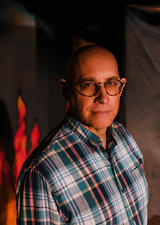
Clem Martini
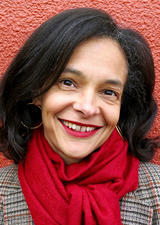
Suzette Mayr
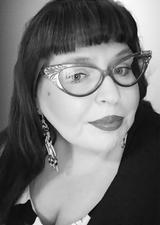
L. Rain Prud'homme-Cranford

Uchechukwu Umezurike
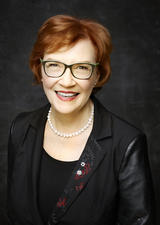
Aritha Van Herk
View profile
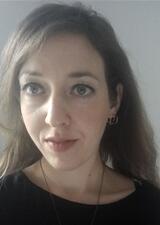
Anna Veprinska
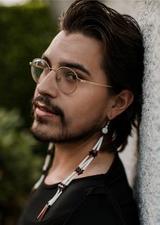
Joshua Whitehead
Expand your writing career.

Master of Arts (MA), thesis-based
Thesis-based programs require that you pursue independent and original research culminating in a thesis. You will work under the supervision of a faculty member whose expertise matches your research area.

Master of Arts (MA), course-based
In a course-based program, all degree requirements are fulfilled by completing courses. These may include courses that involve a project, such as a major research paper or group project.
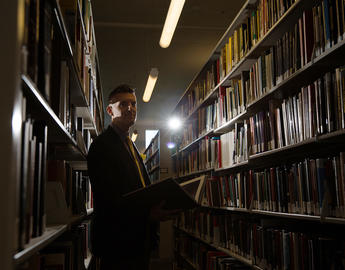
Doctor of Philosophy (PhD)
The Department of English offers a PhD degree with one specialization, Literature in English. The Creative Writing option is available within this specialization.
Ready to apply?
Have you made your final decision and you're ready to apply?
What you'll need
The Faculty of Graduate Studies has detailed instructions about the application process.
Read admission steps and requirements
Do you have everything?
You are responsible for ensuring your application is complete and all documents are received by the deadline.
Graduate supervisor
The Department of English does not require you to confirm a supervisor prior to admission.
Begin your application
First create an eID . You must have one to access the online application.
Once you begin, remember to click 'Save & Continue' often to ensure your application is saved.
Online application
Graduate program contacts
Contact us for any questions you may have about the programs we offer in the Department of English.
Graduate Program Advisor
Ask me about graduate program advising
Lori Somner
Associate Head (Graduate Program)
Ask me about graduate degree requirements
Morgan Vanek
Creative Writing Coordinator
Ask me about the Creative Writing Program
Quick links
- Make a Gift
- Directories
Creative Writing Program

The University of Washington English Department's Creative Writing Program offers a BA in English with a concentration in Creative Writing and a two-year Master of Fine Arts degrees in Poetry and Prose.
Founded in 1947 by Theodore Roethke, the Creative Writing Program's tradition of transformative workshops continues with our current faculty: David Bosworth , Nikki David Crouse , Rae Paris , David Shields, and Maya Sonenberg (Prose), and Linda Bierds (part-time) , Andrew Feld , Richard Kenney, and Pimone Triplett (Poetry). They include among their many honors fellowships from the MacArthur Foundation, the Guggenheim Foundation, and the National Endowment for the Arts, as well as prizes such as the Flannery O’Connor Award in Short Fiction and the McCarthy Prize. The list of our alumni publications represents a significant chapter in the history of American literature. To see recent examples of our MFA Program alumni publications, see the article MFA Program Graduates Publish at Impressive Rates in our Spring 2022 English Matters newsletter .
The MFA Program remains purposely small, admitting only ten students per year. The relatively small size of our program (20 students at most at any given time) allows for close associations to develop among students and faculty. The first year is devoted to participation in workshops and literary seminars, and the second year allows for concentrated work on a creative manuscript and critical essay under the supervision of two creative writing faculty members.
The BA in English with a Creative Writing Concentration prepares students not only to be more effective communicators and artists, but also creative problem solvers and more nuanced critical thinkers. By situating small, student-oriented writing workshops alongside literary models, Creative Writing classes enhance the broader study of literature and critical theory, helping students gain a greater understanding of the social and cultural forces informing their work. A student completing the program is more able to situate themselves in a larger aesthetic and social context and make more meaningful, informed decisions about their own artistic practice. In addition, through the intense practice of creative writing, students are able to see the world more clearly, in a more nuanced and meaningful manner, and apply these skills to a wide variety of work and life situations.
Director: Nikki David Crouse
Program Coordinator: Shannon Mitchell
Graduate Program Advisor: Tim Cosgrove
Undergraduate Program Advising: Humanities Academic Services
Creative Writing News
- Newsletter
Creative Writing
A haven for writers of all genres and ambitions
September 23, 2024
*Flexible payment available
Enroll this week to receive a 5% tuition reduction
Imbue your writing with imagination and range.
Craft writing that is distinct and well-developed..
Stories are timeless and eternal. They are touchstones, formed by time and place, which reflect upon the human experience. Creative writing is an asset in all professional fields throughout diverse positions. The ability to craft intriguing, memorable prose remains one of the most enduring forms of human expression. Learn to conceive and develop integral elements of a story, including plotline, characters, symbolism, setting, and atmosphere.
Our Approach to Online Learning
Optimize your time with a mode of study that allows you to explore content and complete tasks at your own pace.
Interactive
Our interactive content includes videos from instructors at the University of Chicago as well as materials that enable you to learn through real-world examples.
Personalized
Throughout the program, the teaching assistant will serve as a valuable resource to clarify any questions and provide feedback on your work.
Meet Your Instructor
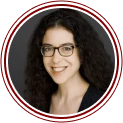
Sarah Terez Rosenblum, MFA
Sarah Terez Rosenblum’s work has appeared in literary magazines such as The Normal School, Prairie Schooner (shortlisted for the publication’s Summer 2020 Creative Nonfiction Prize), Diagram , Brevity, Third Coast , and Carve. In 2022, Rosenblum was shortlisted for StoryQuarterly ’s annual fiction contest. She has written for sites that include Salon, The Chicago Sun-Times, The Satirist, and Pop Matters .
Pushcart Prize-nominated, she earned an MFA in Creative Writing from the School of the Art Institute of Chicago. Rosenblum is a creative coach and developmental editor. She also teaches creative writing at Story Studio, where she was voted 2022 Teacher of the Year, and at the University of Chicago Writer’s Studio. Rosenblum’s novel, Herself When She’s Missing , was called “poetic and heartrending” by Booklist .
Unique Program Features
Live sessions and workshops.
Engage in live sessions and workshops that provide the opportunity to pose questions and exchange ideas.
Practical application
Practice specific craft points and explore the drafting process through weekly writing exercises.
Personalized guidance
Receive feedback from your instructors about the development of your writing.

Learning Outcomes
- Reveal character through action.
- Establish setting through characters’ physicality.
- Write dynamic scenes.
- Create dialogue that reveals character and furthers plot.
- Recognize and use imagery and symbolic language.

After completing the course, you will be able to:
Create a strategy for your organization that makes use of AI to accomplish business goals
Build a team for success in an AI world
Choose the best areas for early-stage development and understand how to scale AI solutions
Earn a certificate of completion from the University of Chicago and become part of the UChicago network
Course Modules
Introduction to writing and crafting character.
- Things to Consider
- Before Writing
- Introduction to
- Description
- Internal Response
Point of View
- Introduction to Point of View
- First Person
- Third Person
- Less Common Points of View: Second Person
- Less Common Points of View: First Person Plural
- Focalization
- Writing Practice
Setting and Mood
- Starting with Setting
- Creating Setting
- Analysis of Setting in The Road
- Introduction to Workshop
- Introduction to Plot
- Basic Plot Arcs
- Denouement and Resolution
- Conflict and Tension
- Change and Imagery
- The Hero’s Journey
- Introduction to Dialogue
- Dialogue and Action
- Creating Tension with Dialogue
- Dialogue and Subtext
- Issues in Dialogue
Voice and Tone
- Introduction to Tone and Voice
- Authorial Voice and Character Voice
- Finding Your Voice
- Strong Story Starts
- Writing Practice: Drafting
Imagery, Symbolism, and Theme
- Introduction to Imagery and Theme
- Figurative Language
- Systems of Imagery: “In the White Night”
- Building Your Own Systems of Imagery
- Writing Practicen
Time Movement and Literary Magazines
- Simple Scene Movement
- Introduction to Flashbacks
- The Mechanics of Flashbacks
- Writing Practice: Submitting Your Work
- Writing Practice: Beyond this Course
This course is designed for:
Individuals with diverse aspirations, backgrounds, and skills interested in exploring writing in an easily accessible way
Learners from all walks of life with curiosity and enthusiasm toward writing, communication, literature, and the art of crafting a story
Experienced writers looking to hone their skills and elevate their expression.
Participant Experiences
Enroll now to receive a 5% tuition reduction
Flexible Payment Options Available
PROGRAM FEE
Any discounts will be applied at checkout.
Pay in Full
| Payment Date | Amount Due |
|---|---|
| Immediately | US$1,600 |
Pay in 2 installments
| Payment Date | Amount Due |
|---|---|
| Immediately | |
| December 28, 2023 |

Creative Writing

Two programs within the umbrella of the Department of English focus on particular aspects or genres of literary endeavor.
The purpose of the Creative Writing program is to give students a rigorous background in the fundamentals of creative work by providing them with the opportunity to study with established poets and prose writers. The program is committed to interdisciplinary work while also teaching the elements of creative writing that underlie all genres. Creative Writing sponsors events , workshops , and lectures and also schedules many undergraduate and graduate classes in writing. Visiting writers each quarter provide a dynamic component to the curriculum, with authors ranging from George Saunders to Susan Howe. English faculty member John Wilkinson is currently the Director of the Program in Creative Writing and the Program in Poetry & Poetics, and several English faculty members, including Rachel Cohen, Edgar Garcia, Srikanth Reddy, Jennifer Scappettone, and Vu Tran, regularly teach both creative and critical classes.
- Creative Writing Website
- Upcoming Creative Writing Events
Minor in English and Creative Writing
Undergraduate students who are not majoring in English may enter a minor program in English and Creative Writing. These students should declare their intention to enter the minor program by the end of Spring Quarter of their third year. Students choose courses in consultation with the Program Manager in Creative Writing and must submit a minor program consent form to their College Adviser in order to declare the minor. Students completing this minor must follow all relevant admission procedures described in the Creative Writing website. Courses in the minor may not be double counted with the student's major(s) or with other minors and may not be counted toward general education requirements. Courses in the minor must be taken for quality letter grades, and all of the requirements for the minor must be met by registering for courses bearing University of Chicago course numbers.
Requirements for the minor program:
- 2 Creative Writing courses (at least one at the Special Topics or advanced level)
- 3 Creative Writing or English electives
- 1 portfolio/projects workshop (or advanced workshop depending on genre) to be taken in the Winter Quarter of the students' fourth year
- A portfolio of the student's work to be submitted to the Director of Undergraduate Studies by the end of the fifth week in the quarter in which the student plans to graduate. The portfolio might consist of a selection of poems, one or two short stories or chapters from a novel, a substantial part or the whole of a play, two or three non-fiction pieces, and so forth.
There is no minor solely in English. The Minor in English and Creative Writing for Non-English Majors is the only minor available through the Department of English.
Poetry and Poetics
This program aims to coordinate the University's various curricular approaches to the creative and critical practice of poetics. The Program supports the History and Forms of Lyric series, an ongoing series of lectures by prominent scholars, and a graduate workshop that focuses on work in progressfrom students, faculty, and visitors. The discussions enabled by the Program are intended to help students at all levels to pursue work that crosses disciplines and discourses. The Program also supports collaboration among faculty members in the form, forexample, of team-taught courses, conferences, and lectures. The Program is overseen by an ad-hoc committee of faculty from various departments, including the Department of English.
The Program in Poetry and Poetics
Affiliated Departments
The University of Chicago in general, and the Department of English in particular, are known for the interdisciplinary and theoretically driven work of their faculty and students. Many English faculty members have joint appointment in other programs at the University, including Comparative Literature, Cinema and Media Studies, Art History, Theater and Performance Studies (TAPS), and the Divinity School, among others. Interdisciplinary work is encouraged in the Department of English--both graduate and undergraduate students take classes in a variety of University departments and programs. Students in these programs, in turn, enliven English classes with their perspectives. Listed below are links to some of the departments with which the Department of English works closely.
- Cinema and Media Studies
- Department of Art History
- Department of Comparative Literature
- Department of Philosophy
- Divinity School
- Theater and Performance Studies (TAPS)
Skip to Content

Current Students

Interested in more? Search Courses
- Search Input Submit Search
Admission Steps
English and literary arts - creative writing - phd, admission requirements.
Terms and Deadlines
Degree and GPA Requirements
Additional Standards for Non-Native English Speakers
Additional standards for international applicants.
For the 2025-2026 academic year
See 2024-2025 requirements instead
Fall 2025 quarter (beginning in September)
Final submission deadline: December 16, 2024
Final submission deadline: Applicants cannot submit applications after the final submission deadline.
Degrees and GPA Requirements
Bachelors degree: All graduate applicants must hold an earned baccalaureate from a regionally accredited college or university or the recognized equivalent from an international institution.
Masters degree: This program requires a masters degree as well as the baccalaureate.
University GPA requirement: The minimum grade point average for admission consideration for graduate study at the University of Denver must meet one of the following criteria:
A cumulative 2.5 on a 4.0 scale for the baccalaureate degree.
A cumulative 2.5 on a 4.0 scale for the last 60 semester credits or 90 quarter credits (approximately two years of work) for the baccalaureate degree.
An earned master’s degree or higher from a regionally accredited institution or the recognized equivalent from an international institution supersedes the minimum GPA requirement for the baccalaureate.
A cumulative GPA of 3.0 on a 4.0 scale for all graduate coursework completed for applicants who have not earned a master’s degree or higher.
Official scores from the Test of English as a Foreign Language (TOEFL), International English Language Testing System (IELTS), C1 Advanced or Duolingo English Test are required of all graduate applicants, regardless of citizenship status, whose native language is not English or who have been educated in countries where English is not the native language. Your TOEFL/IELTS/C1 Advanced/Duolingo English Test scores are valid for two years from the test date.
The minimum TOEFL/IELTS/C1 Advanced/Duolingo English Test score requirements for this degree program are:
Minimum TOEFL Score (Internet-based test): 80
Minimum IELTS Score: 6.5
Minimum C1 Advanced Score: 176
Minimum Duolingo English Test Score: 115
Additional Information:
Read the English Language Proficiency policy for more details.
Read the Required Tests for GTA Eligibility policy for more details.
Per Student & Exchange Visitor Program (SEVP) regulation, international applicants must meet all standards for admission before an I-20 or DS-2019 is issued, [per U.S. Federal Register: 8 CFR § 214.3(k)] or is academically eligible for admission and is admitted [per 22 C.F.R. §62]. Read the Additional Standards For International Applicants policy for more details.
Application Materials
Transcripts, letters of recommendation.
Required Essays and Statements
Writing Sample
We require a scanned copy of your transcripts from every college or university you have attended. Scanned copies must be clearly legible and sized to print on standard 8½-by-11-inch paper. Transcripts that do not show degrees awarded must also be accompanied by a scanned copy of the diploma or degree certificate. If your academic transcripts were issued in a language other than English, both the original documents and certified English translations are required.
Transcripts and proof of degree documents for postsecondary degrees earned from institutions outside of the United States will be released to a third-party international credential evaluator to assess U.S. education system equivalencies. Beginning July 2023, a non-refundable fee for this service will be required before the application is processed.
Upon admission to the University of Denver, official transcripts will be required from each institution attended.
Three (3) letters of recommendation are required. Academic recommendations preferred. Letters should be submitted by recommenders through the online application.
Essays and Statements
Essay instructions.
Applicants should submit a sample of critical prose (e.g., a seminar paper, scholarly publication, or excerpt from thesis or other longer work demonstrating familiarity with the conventions of academic research and writing) not to exceed 20 pages.
Personal Statement Instructions
Personal statements should be 2 pages maximum and should address the applicant's past academic experience, future scholarly goals, and their suitability for graduate study and research in our program.
Résumé Instructions
The résumé (or C.V.) should minimally include the applicant's educational history, work experience, academic experience (including research opportunities or presentations), selected publications, and/or volunteer work.
Writing Sample Instructions
Applicants must submit representative samples of creative work (for Prose, no more than 30 pages; for Poetry, 5 - 10 poems).
Start the Application
Online Application
Financial Aid Information
Start your application.
Your submitted materials will be reviewed once all materials and application fees have been received.
Our program can only consider your application for admission if our Office of Graduate Education has received all your online materials and supplemental materials by our application deadline.
Application Fee: $65.00 Application Fee
International Degree Evaluation Fee: $50.00 Evaluation Fee for degrees (bachelor's or higher) earned from institutions outside the United States.
Applicants should complete their Free Application for Federal Student Aid (FAFSA) by February 15. Visit the Office of Financial Aid for additional information.
Creative Writing
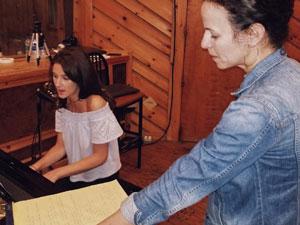
The Program in Creative Writing takes a comprehensive approach to the study of contemporary literature, criticism, and theory from a writer’s perspective, and provides rigorous training in the fundamental practices of creative writing. In our courses, students work with established poets and prose writers towards these pursuits, and both the major and minor in Creative Writing provide ample opportunities for interdisciplinary work across University departments. The program’s commitment to interdisciplinary work and academic rigor, coupled with an emphasis on teaching the elements of creative writing that underlie all genres, accounts for the program's vitality and explains why Creative Writing at Chicago is currently the largest initiative in the humanities for the College. The Program in Creative Writing offers workshops and seminars in poetry, fiction, and nonfiction, as well as an increasing number of translation workshops.
Students who graduate with the bachelor of arts in Creative Writing will both be skilled in writing in a major literary genre and have a theoretically informed understanding of the aesthetic, historical, social, and political context of a range of contemporary writing. Students who are not English Language and Literature or Creative Writing majors may complete a minor in English and Creative Writing.
- Creative Writing in the College Catalog
- Minor in Creative Writing in the College Catalog
- Creative Writing Home Page
Professional Writing Certificate specializing in Business and Technical Writing
Writing is a core workplace competency that falls under the broader category of communication and is required in business, industry, education, and government careers world-wide. Strong writing and editing skills are highly sought after in the workplace.
You will learn and improve numerous skills from basic to more advanced writing and editing including composition, grammar, copyediting, proofreading and specific techniques related to your field of work. This online, flexible and interactive program will allow you to learn the theory behind your writing as well as allow ample time to write practice documents and receive feedback from your instructors and peers to help you convey information in a more clear and persuasive way. Courses are taught by professional writers and published authors.
The certificate can be achieved entirely online. All students must complete the four core courses, two specialization courses, and one optional course to complete the 200-hour requirement. It is strongly recommended that core courses be completed before taking additional courses and that WRI 113 Grammar, Punctuation and Spelling: A Quick Review be taken first.
View course timetable
This program is perfect if you...
- Would like to practise and improve your workplace writing skills
- Would like to enhance your business communication
- Enjoy the convenience of online learning
- Seek a solid credential in business and technical writing
What will I get?
Students who complete this program will receive a Professional Certificate .
Program details
Course delivery online and in class.
All courses in this program are delivered online . Some are also offered in class . Courses are scheduled at convenient times, allowing you to complete the program at a pace that fits your life.
You should plan on studying and working approximately 6 hours per week per course .
Online learning fits into busy schedules by taking the learning experience out of the traditional classroom. Students have online access to instructors, fellow learners, and learning materials.
Before taking your first online course, we recommended taking our free course: Digital Skills for Learning Online
Timeline and planning 7-8 Courses, 200 Hours
All Continuing Education programs are developed with part-time learners in mind. The Professional Writing Certificate specializing in Business and Technical Writing is a 200-hour program .
The length of time it takes to complete this program varies by student. If you take one course per term (four courses a year), you will likely complete the program in two years . You will complete the program faster if you take multiple courses per term.
Cost $4,249
The approximate cost to complete the Professional Writing Certificate specializing in Business and Technical Writing is $4,249 .
This includes the $105 admission fee.
How to apply
You do not require a degree or diploma to apply for admission to this program. You can take individual courses to start, and apply later.
The admission fee is $105 .
To apply, you must meet the following requirements:
- 18 years of age or older
- Grade 12 diploma (recommended)
- Relevant work experience (recommended)
- If English is not your first language, you must meet the English language proficiency requirements
Important: Students are expected to have university-level English writing skills including grammar, vocabulary, and basic writing experience. For those needing these skills, WRI 110 Writing Well can be taken at the beginning of the program.
Programs change from time to time, so we recommend that you apply for admission as early as possible. Once admitted, your requirements to complete the program will not change – even if the program changes. You can be confident that completed and eligible courses will apply to your program.
Credit for prior learning
Prior learning from other post-secondary institutions.
Advanced standing may be granted for equivalent, graded courses completed at other post-secondary institutions. Credit may be granted up to a maximum of 60 hours towards this program.
Transferring credit from other Continuing Education programs
If you have completed requirements for another University of Calgary Continuing Education program, you may be able to transfer some credits to this program. For details, please review the "Credit towards other programs" information in the programs you have completed. To transfer credits, please contact a student advisor .
Maximum advanced standing and transferred credit
The combined total of advanced standing and transferred credits cannot exceed 100 hours for this program.
Credit towards other programs
On completion of this program, you may wish to pursue studies in another.
Upon completing Professional Writing Certificate specializing in Business and Technical Writing , up to 100 hours of equivalent courses may be transferred towards the Creative Writing Certificate and the Professional Writing Certificate specializing in Marketing and Public Relations . The number of hours will vary based on certificate requirements and courses.
If you wish to pursue another program:
- Complete the Application for Admission for your next program
- Contact us to request transfer of the equivalent course credits
The transfer of course credits will not happen without your request.
Scholarships
Each year, scholarships and awards are given to deserving students not only for their academic achievement, but also for community involvement. Award sponsors include both corporate and private donors.
To apply, you must meet eligibility criteria and submission deadlines. Students in this program may be eligible for the following awards:
- Continuing Education Endowment Award
- Continuing Education Equity, Diversity and Inclusion Entrance Awards
- Continuing Education Indigenous Entrance Awards
- Culbert Family Award for Philanthropy
Career connections
How to graduate.
It is the student's responsibility to ensure all requirements for graduation are fulfilled.
See Graduation for details.
International students
This program does not qualify students to apply for an international study permit.
International students who wish to live and work in Canada should consider our International Professional Programs .
Special offer Get a 5% discount
Receive a discount of 5% per course by registering for three or more courses at the same time.
Register online or by calling 403-220-2866 or 1-866-220-4992. Some restrictions may apply (i.e., all courses must take place within the current academic year).
Questions? Please contact us...
Additional details, core courses.
110 Hour(s)
Business and Technical Writing Courses
Optional courses.
210 Hour(s)
By continuing to use this site, you permit us to place cookies on your browser and agree to our use of cookies as explained in our Digital Privacy Statement. Please review the Digital Privacy Statement for details and instructions on changing your cookie preferences.
Session Time-Out
Privacy policy.
The University of Calgary is committed to protecting the privacy of its students.
- Your information is collected under the authority of the Freedom of Information and Protection of Privacy Act .
- It will be used for your registration in UCalgary non-credit events, conferences and courses.
- If you have any concerns about the use of your personal information, please contact Continuing Education Registration Services at [email protected] or 403.220.2866
Cookie Policy
Stanford Creative Writing Program
The Stanford Creative Writing Program, founded in 1946 by Wallace Stegner, has become one of the nation’s most distinguished creative writing institutions. After almost 80 years, the program continues to evolve while also respecting its original vision of recruiting and supporting talented writers, offering exceptional creative writing instruction and mentorship, and inspiring undergraduates to develop their own unique creative written expression.
In the 1940s, E. H. Jones generously created the Wallace Stegner Fellowship, now considered the most prestigious creative writing fellowship in the U.S. for emerging writers. Dr. Jones also made possible the Jones Lectureships, which are limited, fixed-year teaching appointments, allowing exceptional Stegner Fellows some time and support to prepare a manuscript for publication, hone their teaching skills, and transition to a longer-term teaching career elsewhere.
The original framework of term-limited appointments allowed for a consistent flow of selected Stegner Fellows into the Jones Lectureship. However, over time this framework of term-limited appointments was not followed.
In the past two years, the School of Humanities and Sciences leadership and the Creative Writing Academic Council faculty have been working to formulate necessary changes in the program and to identify additional resources to meet its growing needs. A Working Group of Creative Writing Academic Council faculty held listening sessions and discussions.
Now, after thoughtful deliberation, the Working Group has recommended restoring the original intent of the Jones Lectureships: one-year appointments with the possibility of renewal for a limited term, up to a total of five years. This change will again allow Stegner Fellows the opportunity to apply to be Jones Lecturers once they have completed their fellowships. In other words, the Jones Lectureships are not being eliminated; they are only being term limited, as was the original intent of the program, so that the Stegner Fellows have an opportunity to teach Creative Writing courses at Stanford. We plan for there to be as many lecturers in the Program in five years’ time as there are today, and we expect to offer more classes then than now.
The university, school, and numerous generous donors are committed to not only the excellence of the program but also its growth. This means increasing the number of Creative Writing classes to better meet high student demand as well as ensuring competitive compensation for both the lecturers and fellows. We will provide more updates in early fall quarter about the Creative Writing Program and how it will continue to be one of the preeminent programs in the nation.
We understand that these changes to the Jones Lectureships will be met with mixed reactions. However, we firmly believe that the changes advance the program’s pedagogical mission and provide promising writers with the resources to complete their books and obtain appointments at other colleges and universities.
Throughout the history of the program, the Jones Lecturers—both those who are here now and those who have been lecturers in the past—have helped make Stanford Creative Writing what it is today, and we are truly grateful to them for their significant contributions to the program’s mission.
- My UCalgary
- Class Schedule
- UCalgary Directory
- Continuing Education
- Active Living
- Academic Calendar
- UCalgary Maps
- Close Faculty Websites List Viewing: Faculty Websites
- Cumming School of Medicine
- Faculty of Arts
- Faculty of Graduate Studies
- Faculty of Kinesiology
- Faculty of Law
- Faculty of Nursing
- Faculty of Nursing (Qatar)
- Faculty of Science
- Faculty of Social Work
- Faculty of Veterinary Medicine
- Haskayne School of Business
- School of Architecture, Planning and Landscape
- School of Public Policy
- Schulich School of Engineering
- Werklund School of Education
- University of Calgary
- Student Success Centre
- News and Events
- News and blogs
- Getting ready for exams
- Term Break Resources
- Grad Success Days
- Information and Resources for Academic Advisors
- Considering Grad School
- Aspire: Grad and Professional School
- Exploratory Advising
- Scholarships and Awards
- Aspire: Scholarships
- New Student Registration Assistance: Advising
- Thrive Priority Support Network
- Troubleshooting Course Challenges
- Academic Support
- Academic Integrity
- Resources for Staff and Faculty
- Academic Turnaround Program
- First-Year Students
- PASS Program
- Success Seminars
- Academic Skills Badges
- International Students
- Graduate Student Support
- Distance Students
- Time Management
- Study Skills
- Studying with others
- First-Generation Students
- First-Generation Mentorship
- Neurodivergent Students
Writing Support
- Resources for Staff, Faculty and Student Groups
Writing Skills Badges
- Writing Support Workshops

Writing Support offers creative coaching to help you become a more effective communicator. We also recognize the role that writing plays in inquiry and learning.
Notice for Fall Term
Writing Support Services will resume for the Fall 2024 term on September 9th, 2024. Bookings for One-on-One Appointments and Writing. Communities are now open.
One-on-one appointments
Do you want to improve your writing? Writing Support Services offers free individual writing consultations for UCalgary students. We'll support you to develop an individual writing process that'll allow you to become an independent and effective writer.
During the consultations, you can:
- discuss your writing process and learn strategies to write more effectively
- review returned papers to understand how to improve your written assignments
- work with an instructor on an ongoing basis to improve essay structure, paragraph development, sentence structure, style, grammar, and punctuation
- receive information on writing papers, book reviews or other assignments
- learn how to use and document sources
- Get help with English as a second language
One-on-One Writing Support Appointments are available online and in-person, seven days a week throughout the Fall and Winter semesters. Students can book up to two writing appointments per-week with a maximum of two writing appointments per day.
Please Note: The following services will be held in-person only at the location(s) designated in Elevate.
- Sensory-friendly Writing Support Appointments
- Writers’ Space
- Dinos Writing Support
- Writing Support for Indigenous Students at Writing Symbols Lodge
Taylor Family Digital Library, third floor
Contact info
Dr. Kendell Heydon [email protected]
Instructions: book writing appointments and register for events
Booking and Cancelling One-on-One Writing Appointments »
Booking Asynchronous Writing Appointments »
Registering and Cancelling Writing Workshops and Communities »

Peer-Assisted Writing
Want to connect with your peers and learn writing and editing skills at the same time? Join a Peer-Assisted Writing session to meet with a trained peer and hone your skills.
Join a PAW session
Want to learn more about our services? For more details about what we offer and how to access our services, watch our Introduction to Writing Support Services Video
Evening and Weekend Consultations
Evening and weekend writing support sessions are available on Zoom or in-person TFDL 150A. Availability for these sessions can be found under the Writing Support tab in Elevate .
Writing Support for distance students
Are you registered in a distance program at the University of Calgary? Writing support services offers synchronous tutoring for distance students using Zoom. Availability for these sessions can be found under the Writing Support tab in Elevate .
Writing Support online
Writing Support is happy to offer an online venue for UCalgary students to submit questions from anywhere or anytime. This system allows students to submit quick citations or grammar questions. We aim for, but can't always guarantee, a turn-around time of less than a week on email requests for help. The more direct and specific the questions, the faster that we can respond. For more extensive feedback or support, please book a one-on-one appointment or visit our drop-in consultations.
Writers Space: Available for undergraduate and graduate students
Tired of writing alone? Want to develop a writing routine? Need some writing accountability? Join your peers and experienced writing tutors for Writers' Space, available in-person and remotely through Zoom. Sensory-friendly options are also available. Join us for Writers Space and share a supportive space with others while writing. Increase your writing productivity and add an element of structure to your writing sessions by setting a writing goal. Receive feedback on your writing from a writing tutor and connect with other students.
What to expect:
- Set a writing goal(s) at the start of the session.
- Receive feedback on your writing from an experienced writing tutor
- Experience a supportive environment by discussing writing with your peers
- Add accountability by revisiting your writing goals at the end of each session
Writers Space is limited to 12-20 students per session. These sessions differ from regular writing appointments. One writing tutor will run each session and offer feedback to students for a maximum of 15 minutes per session. Prepare for your time by identifying a suitable piece of writing for the tutor to review and prepare a question to ask the writing tutor. The tutors will visit students on a first-come, first-served basis for the duration of the session.
Asynchronous Appointments
Poor internet connection, time zone, or computer availability preventing you from accessing writing support?
If you are experiencing issues attending writing support in person, Writing Support Services will try to accommodate your writing needs by offering asynchronous appointments (appointments not attended in person). Each request is reviewed on a case-by-case basis. Please allow 48 hours for your request to be approved.
To book an asynchronous online writing support appointment
- Book an open appointment as usual.
- Email [email protected] to request the appointment to be changed to asynchronous.
- In the email, provide an explanation of why you need the appointment to be asynchronous, and also the date and time of your appointment.
Writing support for Indigenous students
Join your peers and an experienced writing tutor for Writing support for Indigenous students.
Tired of writing alone? Want to develop a writing routine? Need some writing accountability?
Join us for the newly formatted Writing support for Indigenous students and share a supportive virtual space with others while writing. Increase your writing productivity and add an element of structure to your writing sessions by setting a writing goal. Receive feedback on your writing from a writing tutor and connect with other students in this virtual space.
- Set a writing goal(s) at the start of the session
- Experience a supportive environment by discuss writing with your peers
Writing support for Indigenous students is limited to 8 students per session. These sessions differ from regular writing appointments. An experienced writing tutor will offer feedback to students. Prepare yourself by identifying your questions, thoughts, and/or, writings to discuss with the writing tutor.
A zoom invitation and password will be emailed immediately to registered students once the session starts: it is important that you do not distribute the zoom link and password to other students.
Students may register for writing support for Indigenous students by logging on to https://elevate.ucalgary.ca/home.htm and opening up the "Events/Workshops" calendar.
Workshops and Communities
Writing Support offers writing workshops designed with both undergraduates and graduate students in mind.
Foundational and Focused Writing Workshops
Through the fall and winter semesters, Writing Support offers workshops that all University of Calgary students can attend.
Learn more about Writing workshops
Select writing workshops can be applied towards the Writing Skills digital badges. You can use digital badges as a micro-credential to show peers and potential employers that you're proficient in a specifc skill.
Learn more about Writing Skills Badges
Writers' Space
Writers' Space sessions are available for undergraduate and graduate students. There are a variety of Writers’ Space sessions held in the SSC classroom, in the SSC sensory-friendly space, and in International Student Services (ISS).
Register for a session
Peer Assisted Writing
Register for a PAW session
Resources: Writing Support
Recorded writing workshops.
- Preparing to write your first paper: the expectations of university writing (video)
Scholarships and Applications
- Common myths about medical school applications
- Guide for Faculty: Writing Reference Letters (SSC)
- Tips for Writing a Scholarship Reference (Faculty of Graduate Studies)
- Medical School Applications
- Statements of Intent
Avoiding Plagiarism
- Using Sources - Documenting Sources
- Organizing Sources - Documenting Sources
Citation Styles
- MLA (8th Ed.): Citation style typically used in English and Film
- MLA (9th Ed.): Citation style typically used in English and Film
- APA (6th Ed.): Citation style typically used in Education, Communication, Business and Nursing
- APA (7th Ed.): Citation style typically used in Education, Communication, Business and Nursing
- Chicago: Citation style typically used in History
- CSE: Citation style typically used in the Sciences
- NEW Updated CSE: Citation style typically used in the Sciences
- IEEE: Citation style typically used in Engineering
- Vancouver: Citation style typically used in Biomedical Sciences
Grammar and Editing
Common Grammatical Issues
- Hyphens vs. Dashes
- Parallelism
- Punctuation
- "That" vs. "Which"
- "Affect" vs. "Effect"
- Dangling Participles
Revision & Editing
- 10 Strategies for Readable Writing
- Revising Papers
- Using Transitions
Scientific Reports & Research Papers
- Getting Started: Picking a Topic
- Overview: How to Write a Scientific or Research Report
- Planning for Revision: Develop Your Own Checklist
Writing Assignment Strategies
- Reading Your Assignment Sheet
- Developing a Thesis Statement
- Essay Outlining
- Essay Structure
Presentations
- Poster Presentations
- Report Writing Guidelines
- Analyzing Literature
- Art Writing
- Critique or Review of Research Article
Writing Reference Letters
Guide for Faculty
Creative Writing
The English Department is home to a thriving Creative Writing program. Our faculty have collectively published dozens of books of fiction, poetry, literary nonfiction, and criticism. They have won awards from the National Endowment for the Arts, the Ingram Merrill Foundation, and the Fulbright Program, as well as University-wide awards for outstanding teaching and mentoring. For undergraduates, we offer a track within the English major , as well as a certificate in Creative Writing . For graduate students, we offer a PhD . Students at all levels focus on either fiction, poetry, or literary nonfiction. We are home to an undergraduate journal, Short Vine , a book publisher, Acre Books , and the nationally prominent literary journal The Cincinnati Review . Our PhD program was ranked eighth in the country by Poets & Writers .
Visiting Writers Series
Fiction and Poetry Reading by Lily Meyer and Sarah Rose Nordgren September 5, 2024; 5:30 p.m. EST Elliston Poetry Room, 646 Langsam Library Poetry Reading by Diana Khoi Nguyen and Cindy Juyoung Ok September 17, 2024; 5:30 p.m. EST Elliston Poetry Room, 646 Langsam Library Fiction Reading by Kirstin Valdez Quade November 7, 2024; 5:30 PM EST Elliston Poetry Room, 646 Langsam Library
The Writer and the Literary Agent: A Converation Featuring Kirstin Valdez Quade and Denise Shannon November 8, 2024; 3:30 PM EST Elliston Poetry Room, 646 Langsam Library
Poetry Reading by JJJJJerome Ellis November 13, 2024; 5:30 p.m. EST Elliston Poetry Room, 646 Langsam Library
More information HERE


Creative Writing
The Department of English offers creative writing instruction in multiple formats and offers several degrees and qualifications.
Undergraduate
At the undergraduate level, students who are enrolled in a B.A. program at UT Austin can pursue the Creative Writing Certificate .
For graduate students, there are two degree options in creative writing:
- the New Writers Project MFA in Fiction and Poetry , and
- the Michener Center MFA in Writing .
We invite you to visit the center's pages for information on their programs.

What Is Creative Writing? (Ultimate Guide + 20 Examples)
Creative writing begins with a blank page and the courage to fill it with the stories only you can tell.
I face this intimidating blank page daily–and I have for the better part of 20+ years.
In this guide, you’ll learn all the ins and outs of creative writing with tons of examples.
What Is Creative Writing (Long Description)?
Creative Writing is the art of using words to express ideas and emotions in imaginative ways. It encompasses various forms including novels, poetry, and plays, focusing on narrative craft, character development, and the use of literary tropes.

Table of Contents
Let’s expand on that definition a bit.
Creative writing is an art form that transcends traditional literature boundaries.
It includes professional, journalistic, academic, and technical writing. This type of writing emphasizes narrative craft, character development, and literary tropes. It also explores poetry and poetics traditions.
In essence, creative writing lets you express ideas and emotions uniquely and imaginatively.
It’s about the freedom to invent worlds, characters, and stories. These creations evoke a spectrum of emotions in readers.
Creative writing covers fiction, poetry, and everything in between.
It allows writers to express inner thoughts and feelings. Often, it reflects human experiences through a fabricated lens.
Types of Creative Writing
There are many types of creative writing that we need to explain.
Some of the most common types:
- Short stories
- Screenplays
- Flash fiction
- Creative Nonfiction
Short Stories (The Brief Escape)
Short stories are like narrative treasures.
They are compact but impactful, telling a full story within a limited word count. These tales often focus on a single character or a crucial moment.
Short stories are known for their brevity.
They deliver emotion and insight in a concise yet powerful package. This format is ideal for exploring diverse genres, themes, and characters. It leaves a lasting impression on readers.
Example: Emma discovers an old photo of her smiling grandmother. It’s a rarity. Through flashbacks, Emma learns about her grandmother’s wartime love story. She comes to understand her grandmother’s resilience and the value of joy.
Novels (The Long Journey)
Novels are extensive explorations of character, plot, and setting.
They span thousands of words, giving writers the space to create entire worlds. Novels can weave complex stories across various themes and timelines.
The length of a novel allows for deep narrative and character development.
Readers get an immersive experience.
Example: Across the Divide tells of two siblings separated in childhood. They grow up in different cultures. Their reunion highlights the strength of family bonds, despite distance and differences.
Poetry (The Soul’s Language)
Poetry expresses ideas and emotions through rhythm, sound, and word beauty.
It distills emotions and thoughts into verses. Poetry often uses metaphors, similes, and figurative language to reach the reader’s heart and mind.
Poetry ranges from structured forms, like sonnets, to free verse.
The latter breaks away from traditional formats for more expressive thought.
Example: Whispers of Dawn is a poem collection capturing morning’s quiet moments. “First Light” personifies dawn as a painter. It brings colors of hope and renewal to the world.
Plays (The Dramatic Dialogue)
Plays are meant for performance. They bring characters and conflicts to life through dialogue and action.
This format uniquely explores human relationships and societal issues.
Playwrights face the challenge of conveying setting, emotion, and plot through dialogue and directions.
Example: Echoes of Tomorrow is set in a dystopian future. Memories can be bought and sold. It follows siblings on a quest to retrieve their stolen memories. They learn the cost of living in a world where the past has a price.
Screenplays (Cinema’s Blueprint)
Screenplays outline narratives for films and TV shows.
They require an understanding of visual storytelling, pacing, and dialogue. Screenplays must fit film production constraints.
Example: The Last Light is a screenplay for a sci-fi film. Humanity’s survivors on a dying Earth seek a new planet. The story focuses on spacecraft Argo’s crew as they face mission challenges and internal dynamics.
Memoirs (The Personal Journey)
Memoirs provide insight into an author’s life, focusing on personal experiences and emotional journeys.
They differ from autobiographies by concentrating on specific themes or events.
Memoirs invite readers into the author’s world.
They share lessons learned and hardships overcome.
Example: Under the Mango Tree is a memoir by Maria Gomez. It shares her childhood memories in rural Colombia. The mango tree in their yard symbolizes home, growth, and nostalgia. Maria reflects on her journey to a new life in America.
Flash Fiction (The Quick Twist)
Flash fiction tells stories in under 1,000 words.
It’s about crafting compelling narratives concisely. Each word in flash fiction must count, often leading to a twist.
This format captures life’s vivid moments, delivering quick, impactful insights.
Example: The Last Message features an astronaut’s final Earth message as her spacecraft drifts away. In 500 words, it explores isolation, hope, and the desire to connect against all odds.
Creative Nonfiction (The Factual Tale)
Creative nonfiction combines factual accuracy with creative storytelling.
This genre covers real events, people, and places with a twist. It uses descriptive language and narrative arcs to make true stories engaging.
Creative nonfiction includes biographies, essays, and travelogues.
Example: Echoes of Everest follows the author’s Mount Everest climb. It mixes factual details with personal reflections and the history of past climbers. The narrative captures the climb’s beauty and challenges, offering an immersive experience.
Fantasy (The World Beyond)
Fantasy transports readers to magical and mythical worlds.
It explores themes like good vs. evil and heroism in unreal settings. Fantasy requires careful world-building to create believable yet fantastic realms.
Example: The Crystal of Azmar tells of a young girl destined to save her world from darkness. She learns she’s the last sorceress in a forgotten lineage. Her journey involves mastering powers, forming alliances, and uncovering ancient kingdom myths.
Science Fiction (The Future Imagined)
Science fiction delves into futuristic and scientific themes.
It questions the impact of advancements on society and individuals.
Science fiction ranges from speculative to hard sci-fi, focusing on plausible futures.
Example: When the Stars Whisper is set in a future where humanity communicates with distant galaxies. It centers on a scientist who finds an alien message. This discovery prompts a deep look at humanity’s universe role and interstellar communication.
Watch this great video that explores the question, “What is creative writing?” and “How to get started?”:
What Are the 5 Cs of Creative Writing?
The 5 Cs of creative writing are fundamental pillars.
They guide writers to produce compelling and impactful work. These principles—Clarity, Coherence, Conciseness, Creativity, and Consistency—help craft stories that engage and entertain.
They also resonate deeply with readers. Let’s explore each of these critical components.
Clarity makes your writing understandable and accessible.
It involves choosing the right words and constructing clear sentences. Your narrative should be easy to follow.
In creative writing, clarity means conveying complex ideas in a digestible and enjoyable way.
Coherence ensures your writing flows logically.
It’s crucial for maintaining the reader’s interest. Characters should develop believably, and plots should progress logically. This makes the narrative feel cohesive.
Conciseness
Conciseness is about expressing ideas succinctly.
It’s being economical with words and avoiding redundancy. This principle helps maintain pace and tension, engaging readers throughout the story.
Creativity is the heart of creative writing.
It allows writers to invent new worlds and create memorable characters. Creativity involves originality and imagination. It’s seeing the world in unique ways and sharing that vision.
Consistency
Consistency maintains a uniform tone, style, and voice.
It means being faithful to the world you’ve created. Characters should act true to their development. This builds trust with readers, making your story immersive and believable.
Is Creative Writing Easy?
Creative writing is both rewarding and challenging.
Crafting stories from your imagination involves more than just words on a page. It requires discipline and a deep understanding of language and narrative structure.
Exploring complex characters and themes is also key.
Refining and revising your work is crucial for developing your voice.
The ease of creative writing varies. Some find the freedom of expression liberating.
Others struggle with writer’s block or plot development challenges. However, practice and feedback make creative writing more fulfilling.
What Does a Creative Writer Do?
A creative writer weaves narratives that entertain, enlighten, and inspire.
Writers explore both the world they create and the emotions they wish to evoke. Their tasks are diverse, involving more than just writing.
Creative writers develop ideas, research, and plan their stories.
They create characters and outline plots with attention to detail. Drafting and revising their work is a significant part of their process. They strive for the 5 Cs of compelling writing.
Writers engage with the literary community, seeking feedback and participating in workshops.
They may navigate the publishing world with agents and editors.
Creative writers are storytellers, craftsmen, and artists. They bring narratives to life, enriching our lives and expanding our imaginations.
How to Get Started With Creative Writing?
Embarking on a creative writing journey can feel like standing at the edge of a vast and mysterious forest.
The path is not always clear, but the adventure is calling.
Here’s how to take your first steps into the world of creative writing:
- Find a time of day when your mind is most alert and creative.
- Create a comfortable writing space free from distractions.
- Use prompts to spark your imagination. They can be as simple as a word, a phrase, or an image.
- Try writing for 15-20 minutes on a prompt without editing yourself. Let the ideas flow freely.
- Reading is fuel for your writing. Explore various genres and styles.
- Pay attention to how your favorite authors construct their sentences, develop characters, and build their worlds.
- Don’t pressure yourself to write a novel right away. Begin with short stories or poems.
- Small projects can help you hone your skills and boost your confidence.
- Look for writing groups in your area or online. These communities offer support, feedback, and motivation.
- Participating in workshops or classes can also provide valuable insights into your writing.
- Understand that your first draft is just the beginning. Revising your work is where the real magic happens.
- Be open to feedback and willing to rework your pieces.
- Carry a notebook or digital recorder to jot down ideas, observations, and snippets of conversations.
- These notes can be gold mines for future writing projects.
Final Thoughts: What Is Creative Writing?
Creative writing is an invitation to explore the unknown, to give voice to the silenced, and to celebrate the human spirit in all its forms.
Check out these creative writing tools (that I highly recommend):
| Recommended Tools | Learn More |
|---|---|
| Jasper AI | |
| Show Not Tell GPT | |
| Dragon Professional Speech Dictation and Voice Recognition | |
| Surface Laptop | |
| Bluehost | |
| Sqribble (eBook maker) |
Read This Next:
- What Is a Prompt in Writing? (Ultimate Guide + 200 Examples)
- What Is A Personal Account In Writing? (47 Examples)
- How To Write A Fantasy Short Story (Ultimate Guide + Examples)
- How To Write A Fantasy Romance Novel [21 Tips + Examples)
English with Creative Writing BA (Hons)
Undergraduate degree
Discover what it's like to study the BA (hons) English degree at City, University of London.
Key information
This programme allows you to take a range of innovative creative writing modules – including screenwriting and writing for gaming - to complement the study of English writing throughout the world. You will graduate with a wide range of creative and applied professional skills.
- 3 years full-time
- 4 years with placement or study abroad year
Institution
City, University of London
Northampton Square
Entry requirements
Below is a list of countries with information on each about which qualifications we accept. If your country is not listed please email [email protected] .
Contextual offers
We apply a contextual admissions process for UK undergraduate applicants who have been in care, attend a low performing school, live in an area where few students go to university, or are the first generation of their family to enter Higher Education.
Those who are eligible may receive a conditional offer with reduced entry requirements, typically up to two grades lower for A-levels and one grade (or eight tariff points) for BTEC or mixed qualifications.
Mixed qualifications
Typically the only scenario where we make conditional offers expressed as UCAS tariff points is when an applicant presents mixed qualifications, most typically a combination of A Levels and a BTEC qualification.
In this instance, we may make a tariff point offer to present the applicant with more flexibility on equivalencies. In this case, please be aware that we may still ask for a specific score across certain qualifications and subjects. E.g. 'This offer is conditional on you achieving 128 tariff points. This must include A Level Mathematics at grade B.'
Subject exclusions
We do not accept General Studies and Critical Thinking. These subjects will not be included in any conditional offer we make.
Extended Project Qualification (EPQ)
We welcome applications from students who are completing relevant EPQ Projects. Whilst we recognise the value of these projects in preparing students for independent learning at university, the EPQ is unlikely to form part of any conditional offer we make.
The EPQ will also not lower the specifics of any conditional offer we choose to make. We will consider the EPQ as part of the holistic assessment of the application and it could be used to form part of our final decision at Confirmation stage.
We recognise that there will be differences of opportunity varying by school and college. As not all students will have the opportunity to sit AS Level exams, it is unlikely we will include AS Level grades in any offer we choose to make. Where students have completed an AS Level subject, we will consider this as part of the holistic assessment of the application and it could be used to form part of our final decision at Confirmation stage.
University preparation programmes
If you do not qualify for direct entry, you may wish to take a foundation programme first. These programmes are designed to prepare students for entry to City's undergraduate courses.
Access to Higher Education
We welcome Access course applications from 'mature' students. These applicants will be considered on the basis of their own merits. Please be aware that Access students are often asked for further information to supplement their application, this is normally in the form of a questionnaire.
A typical offer for an Access applicant would be:
- Access to HE course with 60 credits overall to include 45 credits at Level 3 with 24 Level 3 credits at Distinction and 21 Level 3 credits at Merit.
- The Access qualification should be supplemented by at least a grade 6 (B) in Mathematics and grade 4 (C) in English Language at GCSE.
The Zimbabwe GCE A Level is considered on a grade for grade basis with GCE A Levels.
Visa requirements
International Students coming to study in the UK may need to apply for a visa or entry clearance to come to the UK to study. The way that you apply may vary depending on the length of your course. There are different rules for:
- Students on courses of more than six months
- Students on courses of less than six months
For more information see our main Visa page .
The School Certificate / General Certificate of Education.
Students must successfully complete a recognised foundation course.
Tot Nghiep Pho Thong Trung Hoc (Upper Secondary School Graduation Certificate) students must successfully complete a recognised foundation course.
Uzbekistan Certificate of Secondary Education.
Certificate of Complete General Secondary Education.
Advanced Certificate in Education (UACE) is considered on a grade for grade basis with GCE A Levels.
Advanced Placements.
Please refer to the UK entry requirements for this course, check for any prerequisites such as compulsory or preferred subject areas, and use the following as an indication of the US equivalent required.
The equivalents provided are intended as a guide only and individual applications are assessed on a case-by-case basis.
The following A-level equivalences to Advanced Placements will typically be applied:
- A-level AAA = Advanced Placements 555
- A-level AAB = Advanced Placements 554
- A-level ABB = Advanced Placements 544
- A-level BBB = Advanced Placements 444
- A-level BBC = Advanced Placements 443
- A-level BCC = Advanced Placements 433.
Thanawaya (General Secondary Education Certificate Examination)- students must successfully complete a recognised foundation course.
Secondary certificate.
Mathayom Suksa 6 (Senior High School Leaving Certificate) students must successfully complete a recognised foundation course.
Certificate of Secondary Education (CSE)
Senior High School Leaving Certificate students must successfully complete a recognised foundation course.
Junior College Diploma
The exact requirements from the above qualification differ between courses. Please contact Admissions to confirm the requirements for your course of interest.
Switzerland
Federal Maturity Certificate/Maturitatzeugnis/Cantonal Maturity Certificate. The exact requirements from the above qualification differ between courses. Please contact Admissions to confirm the requirements for your course of interest.
International Students from within the European Economic Area (EEA) may need to apply for a Student visa or entry clearance to come to the UK to study if they do not have EU Settlement Status.
- Students on courses of less than six months.
Avgångsbetyg / Slutbetyg från Gymnasieskola. The exact requirements from the above qualification differ between courses. Please contact Admissions to confirm the requirements for your course of interest.
Sri Lankan General Certificate of Education (Advanced Level).
Considered equivalent to UK A-levels on a like for like basis.
Título de Bachillerato (LOGSE)
Please refer to the UK entry requirements for this course, check for any prerequisites such as compulsory or preferred subject areas, and use the following as an indication of the Polish equivalent required.
The following A-level equivalences to Título de Bachillerato (LOGSE) will typically be applied:
- A-level AAA = 8
- A-level AAB = 7.8
- A-level ABB = 7.6
- A-level BBB = 7.4
- A-level BBC = 7.2
- A-level BCC = 7.
Please contact Admissions to confirm the requirements for your course of interest.
South Korea
Korean High School Diploma students must successfully complete a recognised foundation course.
South Africa
The National Senior Certificate will be accepted for direct entry to certain undergraduate courses normally
Maturitetno spričevalo (Matura Certificate). The exact requirements from the above qualification differ between courses. Please contact Admissions to confirm the requirements for your course of interest.
Vysvedčenie o maturitnej skúške (Secondary School Leaving Certificate). The exact requirements from the above qualification differ between courses. Please contact Admissions to confirm the requirements for your course of interest.
Singapore-Cambridge GCE A-levels considered equivalent to UK A-levels on a like-for-like basis.
Polytechnic Diploma students considered for year 1 or year 2 entry on a case-by-case basis depending on subjects taken and CGPA.
Please contact Admissions to confirm your eligibility and the requirements for your course of interest.
Secondary School Leaving Diploma/Matura. The exact requirements from the above qualification differ between courses. Please contact Admissions to confirm the requirements for your course of interest.
Saudi Arabia
Thanawaya (General Secondary Education Certificate) - students must successfully complete a recognised foundation course.
The Rwanda Advanced Certificate of Education (A-level)
The Attestat o Srednam Obrazov
Diplomă de Bacalaureat. The exact requirements from the above qualification differ between courses. Please contact Admissions to confirm the requirements for your course of interest.
Diploma/Certificado Nível Secundário de Educação. The exact requirements from the above qualification differ between courses. Please contact Admissions to confirm the rquirements for your course of interest.
Swiadectwo Dojrzałości / Matura.
The following A-level equivalences to Swiadectwo Dojrzałości / Matura will typically be applied:
- A-level AAA = Swiadectwo Dojrzałości / Matura 80% average from 3 extended subjects
- A-level AAB = Swiadectwo Dojrzałości / Matura 78% average from 3 extended subjects
- A-level ABB = Swiadectwo Dojrzałości / Matura 76% average from 3 extended subjects
- A-level BBB = Swiadectwo Dojrzałości / Matura 74% average from 3 extended subjects
- A-level BBC = Swiadectwo Dojrzałości / Matura 72% average from 3 extended subjects
- A-level BCC = Swiadectwo Dojrzałości / Matura 70% average from 3 extended subjects.
Higher Secondary Certificate (HSC).
Thanawaya (General Education Diploma) - students must successfully complete a recognised foundation course.
Vitnemål fra den Videregående Skole (VVO). The exact requirements MAY differ between courses.
Please refer to the UK entry requirements for this course, check for any prerequisites such as compulsory or preferred subject areas, and use the following as an indication of the Norwegian equivalent required.
The following A-level equivalences to Vitnemal will typically be applied:
- A-level AAA = 5
- A-level AAB = 4.5
- A-level ABB = 4.5
- A-level BBB = 4
- A-level BBC = 4
- A-level BCC = 3.5
Senior School Certificate/West African Senior School Certificate
Netherlands
Voorbereidend Wetenschappelijk Onderwijs (VWO). The exact requirements from the above qualification differ between courses. Please contact Admissions to confirm the requirements for your course of interest.
The Moroccan Diplôme du Baccalauréat/Attestation du Baccalauréat
Titulo Académico de Bachiller / Diploma de Bachiller / Bachillerato General - students must successfully complete a recognised foundation course.
The CIE A Level sat in Mauritius is considered on a grade for grade basis with GCE A Levels sat in the UK.
Advanced Matriculation and Matriculation Certificate Examination are comparable to A Levels with the same grading system as UK A levels.
STPM / UEC.
Please refer to the UK entry requirements for this course, check for any prerequisites such as compulsory or preferred subject areas, and use the following as an indication of the Malaysian equivalent required.
The following A-level equivalences to STPM will typically be applied:
- A-level AAA = STPM AAA
- A-level AAB = STPM AAB
- A-level ABB = STPM ABB
- A-level BBB = STPM BBB
- A-level BBC = STPM BBC
- A-level BCC = STPM BCC.
The following A-level equivalences to UEC will typically be applied:
- A-level AAA = UEC AAAAAA
- A-level AAB = UEC AAAABB
- A-level ABB = UEC AABBBB
- A-level BBB = UEC BBBBBB
- A-level BBC = UEC BBBBCC
- A-level BCC = UEC BBCCCC.
Diplôme de Fin d'Etudes Secondaires. The exact requirements from the above qualification differ between courses. Please contact Admissions to confirm the requirements for your course of interest.
Brandos Atestatas (Certificate of Maturity). The exact requirements from the above qualification differ between courses. Please contact Admissions to confirm the requirements for your course of interest.
Lebanese Baccalaureate - students must successfully complete a recognised foundation course.
Atestats par visparejo videjo izglitibu (Certificate of General Secondary Education). The exact requirements from the above qualification differ between courses.
Kenya Certificate of Secondary Education (KCSE)
Certificate of Completed Secondary Education.
Thanawaya (Certificate of General Secondary Education) - students must successfully complete a recognised foundation course.
Kotogakko Sotsugyo Shomeisho (Upper Secondary School Leaving Certificate) students must successfully complete a recognised foundation course.
Senmonshi (vocational degree), Jun-Gakushi (associate degree) and Tanki Daigaku Shuryo Shoshois (Junior College Certificate of Graduation) considered for direct entry on a case-by-case basis. Please contact Admissions to confirm the requirements for your course of interest.
Diploma di Esame di Stato.
Please refer to the UK entry requirements for this course, check for any prerequisites such as compulsory or preferred subject areas, and use the following as an indication of the Italian equivalent required.
The following A-level equivalences to Diploma di Esame di Stato will typically be applied:
- A-level AAA = Diploma di Esame di Stato 85%
- A-level AAB = Diploma di Esame di Stato 84%
- A-level ABB = Diploma di Esame di Stato 80%
- A-level BBB = Diploma di Esame di Stato 78%
- A-level BBC = Diploma di Esame di Stato 76%
- A-level BCC = Diploma di Esame di Stato 74%.
Irish Leaving Certificate. The exact requirements from the above qualification differ between courses. Please contact Admissions to confirm the requirements for your course of interest.
Surat Tanda Tamat Belajar Sekolah Menengah Umum Tingkat Atas (Senior Secondary School Certificate of Completion) students must successfully complete a recognised foundation course.
Diploma III & IV students considered for year 1 entry on a case-by-case basis. Please contact Admissions to confirm the requirements for your course of interest.
Please refer to the UK entry requirements for this course, check for any prerequisites such as compulsory or preferred subject areas, and use the following as an indication of the Indian equivalent required.
The following A-level equivalences to HSC XII will typically be applied:
- A-level AAA = CBSE & ICSE Exam Board HSC XII 80%
- A-level AAB = CBSE & ICSE Exam Board HSC XII 78%
- A-level ABB = CBSE & ICSE Exam Board HSC XII 76%
- A-level BBB = CBSE & ICSE Exam Board HSC XII 74%
- A-level BBC = CBSE & ICSE Exam Board HSC XII 72%
- A-level BCC = CBSE & ICSE Exam Board HSC XII 70%
Stúdentspróf. The exact requirements from the above qualification differ between courses. Please contact Admissions to confirm the requirements for your course of interest.
Érettségi. The exact requirements from the above qualification differ between courses. Please contact Admissions to confirm the requirements for your course of interest.
Hong Kong Diploma of Secondary Education.
Please refer to the UK entry requirements for this course, check for any prerequisites such as compulsory or preferred subject areas, and use the following as an indication of the Hong Kong equivalent required.
The following A-level equivalences to HKDSE will typically be applied:
- A-level AAA = HKSDE 555 (excluding Liberal Studies and Chinese)
- A-level AAB = HKSDE 555 (excluding Liberal Studies and Chinese)
- A-level ABB = HKSDE 554 (excluding Liberal Studies and Chinese)
- A-level BBB = HKSDE 554 (excluding Liberal Studies and Chinese)
- A-level BBC = HKSDE 544 (excluding Liberal Studies and Chinese)
- A-level BCC = HKSDE 544 (excluding Liberal Studies and Chinese).
Greek Apolytirion. Please note that exact requirements may differ between courses.
Please refer to the UK entry requirements for this course, check for any prerequisites such as compulsory or preferred subject areas, and use the following as an indication of the Greek equivalent required.
The following A-level equivalences to Greek Apolytirion will typically be applied:
- A-level AAA = 18/20 plus; 18/20 in two PanHellenics
- A-level AAB = 18/20 plus; 17/20 in two PanHellenics
German Abitur.
Please refer to the UK entry requirements for this course, check for any prerequisites such as compulsory or preferred subject areas, and use the following as an indication of the German equivalent required.
The following A-level equivalences to Abitur will typically be applied:
- A-level AAA = Abitur 1.8
- A-level AAB = Abitur 2.0
- A-level ABB = Abitur 2.2
- A-level BBB = Abitur 2.4
- A-level BBC = Abitur 2.6
- A-level BCC = Abitur 2.8.
French Baccalaureate.
Please refer to the UK entry requirements for this course, check for any prerequisites such as compulsory or preferred subject areas, and use the following as an indication of the French equivalent required.
The following A-level equivalences to French Baccalaureate will typically be applied:
- A-level AAA = French Baccalaureate 15/20
- A-level AAB = French Baccalaureate 14/20
- A-level ABB = French Baccalaureate 13/20
- A-level BBB = French Baccalaureate 12.5/20
- A-level BBC = French Baccalaureate 12/20
- A-level BCC = French Baccalaureate 11.5/20.
Gümnaasiumi loputunnistus with the Riigieksamitunnistus (Secondary School Leaving Certificate with the State Examination Certificate).
Certificate of Nile International Secondary Education
Hojere Forberedelseseksamen (HF). The exact requirements from the above qualification differ between courses. Please contact Admissions to confirm the requirements for your course of interest.
Czech Republic
Vysvědčení o maturitní zkoušce / Maturita (Secondary School Leaving Certificate). The exact requirements from the above qualification differ between courses.
Apolytirion. The exact requirements from the above qualification differ between courses. Please contact Admissions to confirm the requirements for your course of interest.
The following A-level equivalences to Apolytirion will typically be applied:
- A-level AAA = 19 (91 – 95)
- A-level AAB = 18.5 (88 – 90)
- A-level ABB = 18 (86 – 90)
- A-level BBB = 18 (86 – 90)
- A-level BBC = 17.5 (83 – 85).
Maturalna svjedodzba (Matura Certificate). The exact requirements from the above qualification differ between courses. Please contact Admissions to confirm the requirements for your course of interest.
Bachiller Académico/Technico
Senior High School Certificate students must successfully complete a recognised foundation course.
Gaokao students with exceptional grades considered for direct entry on a case-by-case basis. Please contact Admissions to confirm the requirements for your course of interest.
Grade 12 high school graduation certificate / diploma. Please note that exact requirements may differ between provinces.
Please refer to the UK entry requirements for this course, check for any prerequisites such as compulsory or preferred subject areas, and use the following as an indication of the Canadian equivalent required.
The following A-level equivalences to Canadian year 12 Diplomas will typically be applied:
- A-level AAA = 85% average across 5 best Grade 12 subjects
- A-level AAB = 80% average across 5 best Grade 12 subjects
- A-level ABB = 77% average across 5 best Grade 12 subjects
- A-level BBB = 75% average across 5 best Grade 12 subjects
- A-level BBC = 72% average across 5 best Grade 12 subjects
- A-level BCC = 70% average across 5 best Grade 12 subjects.
The Cameroonian GGCE is normally considered like for like with UK A levels.
Diploma Za Sredno Obrazovanie.
Please refer to the UK entry requirements for this course, check for any prerequisites such as compulsory or preferred subject areas, and use the following as an indication of the Bulgarian equivalent required.
The following A-level equivalences to Diploma Za Sredno Obrazovanie will typically be applied:
- A-level ABB = Diploma Za Sredno Obrazovanie 5.3 average and 5 in state exams
- A-level BBB = Diploma Za Sredno Obrazovanie 5.0 average and 4 in state exams
- A-level BBC = Diploma Za Sredno Obrazovanie 4.5 average and 4 in state exams
- A-level BCC = Diploma Za Sredno Obrazovanie 4.0 average and 4 in state exams
- A-level CCC = Diploma Za Sredno Obrazovanie 4.0 average and 4 in state exams.
Brunei-Cambridge GCE A-levels considered equivalent to UK A-levels on a like for like basis.
- Certificado de Conclusao de Ensino Médio
- Certificado de Conclusao de Segundo Grau
Botswana National qualifications
Diploma van Secundair Onderwijs/Certificat d'Enseignement Secondaire Supérieur.
General Secondary Education Certificate.
Reifeprufungszeugnis/Maturazeugnis. The exact requirements from the above qualification differ between courses. Please contact Admissions to confirm the requirements for your course of interest.
Titulo de Bachiller.
The Baccalaureat de l'Enseignement Secondaire
Diplome e Matures Shteterore (Diploma of State Matura). Students must successfully complete a recognised foundation course. Alternatively, IB, A Levels, or other European system will be considered.
If you are unable to find your country equivalents in the above list, City will consider other international qualifications on a case by case basis.
Please contact the Admissions team for more details.
English language requirements
If your first language is not English, we will require evidence of English language proficiency. Minimum requirements are:
English language programmes
Don’t meet the English language requirements? INTO City, University of London offers English language programmes to help prepare you for study at university. These intensive and flexible courses are designed to improve your English ability for entry to degree courses.
Why choose this course?
in London for student satisfaction in English studies three years in a row (NSS Survey 2022-2024)
Study in the heart of London, a global hub of literary creativity.
Explore your artistic side and learn how to write fiction and creative non-fiction, and for films, television and games.
- Course overview
Teaching and assessment
Fees and funding, how to apply, english with creative writing ba (hons) degree course overview.
This course is subject to approval for 2025 entry.
This programme builds on our international reputation in creative writing, media and the creative industries.
Your first year is shared with BA English. Throughout your degree you will study the written word across time and space, from Shakespeare to popular music, comic books to Chimamanda Ngozi Adichie.
By the end of your studies, you will be able to communicate in different professional and critical forms, using the written and spoken word.
You will also develop a set of specialised and applied skills in contemporary forms of creative writing, from short stories and literary journalism to screenplays and game dialogue. You’ll graduate with a compelling portfolio of sample writings.
- Immerse yourself in world literature and study in Central London, which has inspired so many iconic stories.
- Learn how to write in a range of genres and voices, including screenplays, poetry, short stories, narrative non-fiction and gaming narrative.
- Develop applied creative skills in communication, persuasion, individuality, writing for different audiences, and awareness of different creative industry markets.
- Learn from a team of expert lecturers who are passionate about creativity and the written word.
Course content
Develop your own creative and professional skills while immersing yourself in the study of English in this three year-degree.
Year 1: Develop a thorough grounding in reading, writing, academic and creative skills. Encounter a range of texts from around the world, explore how creative writing represents issues like social justice, and develop your own skills in storytelling.
Year2: Take core modules in creative short fiction and screenplay writing. Deepen your understanding of writing in English by choosing from a range of modules focusing on global and English literature, publishing, writing for media and communications, and advertising.
Year 3: Take core modules in writing for gaming and long-form journalism. Choose from a range of options including contemporary approaches to writing in English, media, marketing and publishing. Cap your degree with an optional creative writing project.
Study abroad
As an Undergraduate student you can undertake a period of study abroad whilst completing the programme.
This is possible through the Exchange Programme, a year of study at one of our European and/or international partner universities via a sandwich year, which is undertaken between completing Programme Stage 2 and entering Programme Stage 3, extending the degree to four years.
The resulting degree title awarded would be: BA English with Study Abroad.
We have strong links with Universities such as:
- Curtin University
- University of Queensland
- Queensland University of Technology.
North America
- University of British Columbia
- Concordia University
- Northeastern University
- Toronto Metropolitan University.
- Koç University.
Your modules will be delivered using a combination of:
- Practical workshops
- Interactive sessions
- Small seminars
- Personal tutorials
Lectures will provide you with commentary and explanation of key content areas. Most modules also offer small seminars and workshops, where you can develop your understanding of key texts and ideas through discussion and debate as well as hone your practical and professional skills. This versatility of approach will not only facilitate discussion but allow you to generate your own content, with different readerships, forms and functions in mind.
Assessment methods
Your programme will be assessed via a range of coursework and practical assignments, which may include:
- Professional, reflective, and creative assignments and portfolios
- Group assignments, including projects, performances, and presentations
- Live showcase events.
Fees for year 2025/26
To be confirmed
International
The fees indicated are for undergraduate entry in the 2025/26 academic year only. Fees for future years may be subject to an inflationary increase in the region of 5%.
Funding options
Explore up-to-date information about funding options, available financial support and typical living costs .
- Fee waivers are available for this course.
- Means tested support is available for 2025/26 entry.
Additional expenses
Some of our degrees may involve additional expenses which are not covered by your tuition fees. Find out more about additional expenses .
You will graduate with a unique blend of intellectual and creative skills.
Our employability-focused curriculum strongly emphasises the practical application of your skills in a professional context. You’ll have the opportunity to take a work placement module or year, apply for a year’s study abroad, or undertake shorter and intensive work placements.
Delivered through world-class teaching dedicated to enhancing your job prospects, this course prepares you for a range of possible career options, including:
- creative writing
- writing for film, television and other media including games
- advertising and marketing
- library and archival professions
- civil service.
More information on the Careers support available at City is available on our website.
Placement opportunities
As an English student at City, you will have the opportunity to take a second-year elective module, ‘Work Placement’. You may also apply to take a sandwich year between years two and three of your degree. Our careers team will help you secure a placement in the areas that meet your future ambitions.
Previous students have taken their placements in a wide range of sectors, including:
- Publishing (Penguin)
- Teaching Assistant (Secondary)
- Marketing (Intern at 11 Investors recruitment group)
- Theatre work (Chickenshed)
- Charity work (Oxfam books).
Applications for degree courses must be made through the Universities and Colleges Admissions Service (UCAS).
You can apply through your school or college using the Apply system, which enables you to submit your application directly to the UCAS website .
You can apply to up to five universities or institutions on the form. The UCAS code for City, University of London is C60 .
Please take care to enter the correct course code when applying, particularly for subjects with a Foundation year or with BEng (Hons) and MEng (Hons) or BSc (Hons) and MSci (Hons) options.
UCAS has implemented an 'invisibility of choices' policy so that, on the initial application and while you are receiving decisions, each institution can see only their entry and not those of other institutions you have chosen. This ensures that your application for a course at City is considered solely on your academic and personal qualities.
You should submit your completed application form to UCAS with a £27.50 application fee.
For enquiries about the admissions process at City, please contact our Admissions Office
Complete the Admissions enquiry form .
Call: +44 (0)20 7040 8716.
When to apply
Your application for entry in September 2025 should arrive at UCAS between September 2024 and 31 January 2025. Applications that arrive after 31 January 2025 will be considered only at City's discretion.
Contacting UCAS
Website: www.ucas.com
Address: Universities and Colleges Admissions Service (UCAS), Rosehill, New Barn Lane, Cheltenham, Gloucestershire, GL52 3LZ
- from inside the UK 0871 468 0468
- from outside the UK +44 (0)871 468 0468
For callers with hearing difficulties:
- from inside the UK use the Text Relay service on 18001 0871 468 0468
- from outside the UK dial +44 151 494 1260 (text phone) and then ask the operator to dial 0871 468 0468.

Our students
BA (Hons) English student Ruth’s insights
Ask a student
Want to find out more about student life? Chat with our student ambassadors and ask any question you have
Your studies are supported by a team of committed and enthusiastic teachers and researchers, experts in their chosen field. On occasion we also work with external professionals to enhance your learning and appreciation of the wider subject.
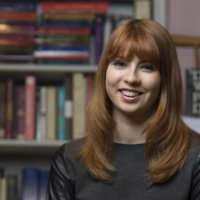
Dr Hetta Howes
Senior Lecturer in Medieval and Early Modern Literature
- Department of Media, Culture and Creative Industries
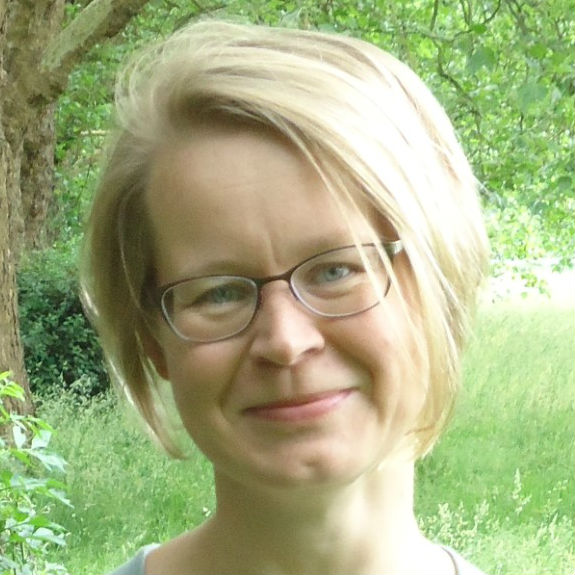
Dr Minna Vuohelainen

Dr Sarah Jilani
Lecturer in English
What's happening
Nov 06
Postgraduate Open Evening
Join us at our Postgraduate Open Evening to learn more about our postgraduate courses and discover all the benefits of studying at City, University of London.
Wednesday, 6 th November 2024 , 17:00 – 19:00
Location: Northampton Square
Audience: Prospective students

Wednesday, 10 th January 2024
Stories shape our world as concretely as infrastructure
Dr Dominic Davies publishes new book The Broken Promise of Infrastructure, which investigates the cultural politics of infrastructure in Britain.

Friday, 10 th March 2023
‘Working with Words’ opens up career possibilities for English students
Careers-focused module boosts BA English students’ employability at City.
Related courses
Journalism ba (hons).
Train for a career in journalism with this hands on degree. Develop the skills you need to become a print, broadcast or online journalist, alongside research and critical thinking skills.
Award: Bachelor of Arts (Honours)
Duration: 3 years (4 years with placement or study abroad year)
History BA (Hons)
Our fascinating three-year History BA Hons degree invites you to explore the events, force and ideas that have shaped modern and international history.
Useful links
- School of Communication & Creativity
- Creative writing and publishing at City, University of London
- English at City, University of London
Contact details
Undergraduate enquiries.
+44 (0)20 7040 8716
Admissions enquiries
Creative Writing, M.F.A.
College of Arts and Sciences
Expand your knowledge and hone your craft with our fully funded, three-year master’s degree in creative writing, which combines the intimacy of a small program with visits by renowned authors from around the world.
Our dynamic MFA program provides a rigorous yet nurturing community where aspiring writers can compose, experiment, learn and evolve. You’ll have the chance to work with stellar faculty, which includes winners of the National Book Award, the PEN Open Book Award, the Berkshire Prize and the Iowa Poetry Prize (to name only a few).
Program Highlights
Internationally recognized faculty.
Learn from our diverse and dynamic faculty of inspiring teachers, dedicated mentors and award-winning writers.
World-Class Visiting Authors
Engage with renowned authors from around the world through the Open Book as well as our Fall Literary Festival and other series.
Hone your teaching skills and ignite a love of writing in young learners by visiting local public schools as a Split P fellow.
Cola Literary Review
Support and promote new literary work by established and emerging authors by editing our annual print journal.
What You’ll Study
Popular experiences include Fiction and Poetry workshops as well as our annual literary events. Study literature, theory of teaching composition, and electives while completing a book-length MFA project with the mentorship of faculty. Graduates have gone on to careers as authors and agents, in publishing and on the faculty at universities.
Building Skills
Gain the professional and personal intelligence it takes to have a successful career.
Creating professional written content for inclusion in scholarly journal articles, books and reports
Thinking imaginatively, generating original ideas and expressing unique perspectives through art and innovation
Aesthetic and Conceptual Awareness
Cultivating an understanding of artistic and abstract concepts, enhancing appreciation for beauty and creative expression
Foster learning by conveying knowledge, skills and concepts to students
Gathering and analyzing information to increase knowledge or solve problems
Critical Thinking
Analyzing and evaluating information to make informed decisions or judgments
Using your degree
Make your college experience the foundation for a successful future.
Learn how alumni use degrees with outcome data from Gamecock GradStats , a service of the University of South Carolina Career Center.
Potential Careers
- Fiction Writer
- Creative Writing Professor
- Literary Agent
- Journalist / Essayist
Job Titles of Alumni
- Writer and Editor
- Poetry Fellow
- English Teacher
- Assistant Professor
- Communications Specialist
- Freelance Writer
Average Alumni Salary
Five to 10 years after graduation without additional education $76,434
Workplace Settings
- Literary Journals and Magazines
- Small or Large Presses
- Literary Agencies
- Freelance Writing
- Journalism / Commentary
- Higher Education
- Yemassee Journal
- Tulsa Artist Fellowship
- Editorial Consulting
- University of South Carolina
- University of North Carolina at Asheville
- Word Life Editorial
Faculty members in the creative writing program are generous with their time and advice, while taking a light hand in shaping your experience. I have the guidance I need while being able to make my own decisions and explorations.
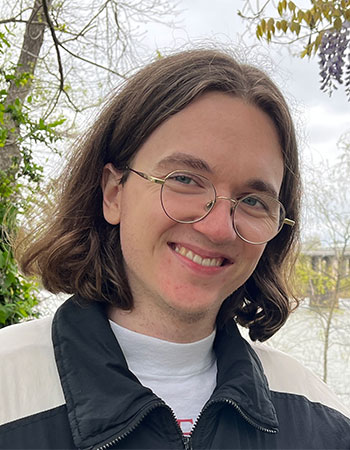
You may also like
Related Degrees
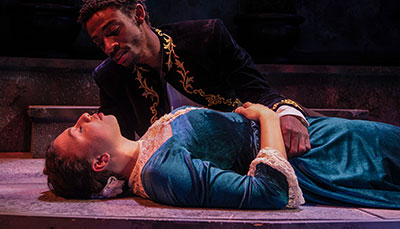
Theatre, M.A.

Conducting: Music, M.M.
School of Music

Opera Theatre: Music, M.M.

Music Performance, M.M.
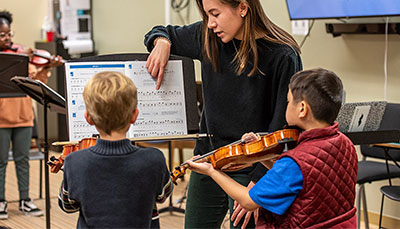
Violin/Viola Pedagogy: Music, M.M.
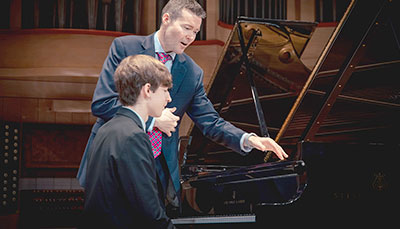
Piano Pedagogy: Music, M.M.
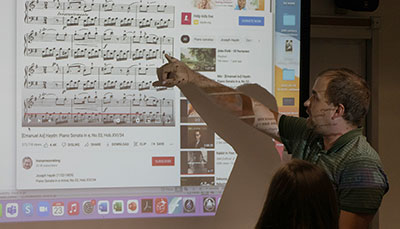
Music Theory: Music, M.M.
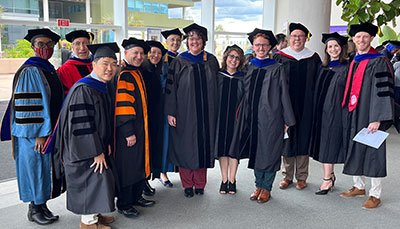
Linguistics, M.A.
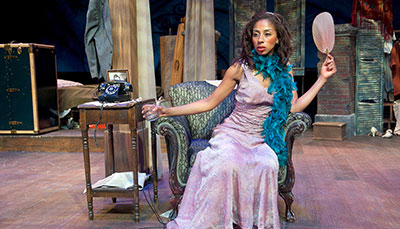
Theatre, M.F.A.
- Creative Writing Programs
- Opportunities
- Prospective Students
- MFA Program Options
- Optional Summer Residency
- How to Write a Novel
- Writing for Video Games
- Communications Support
- Equity, Diversity & Inclusion
Indigenous Engagement
- Prize for Best New Fiction
- Job Opportunities
We warmly welcome applications from Indigenous students to our BFA and MFA programs.
Undergraduate Programs
Imagine. Create. Find your voice. Hone the fundamentals of craft in a variety of genres in our BFA and Minor Programs.
Graduate Programs
Wherever you’re writing from, our renowned MFA program offers a world-class educational experience either on-campus or online.
Continuing Education
Learn from leading professors and authors without the commitment of a degree program.
Study with our faculty of internationally renowned, award-winning authors in a student-focused program that blends the best of traditional workshop and leading edge pedagogy.
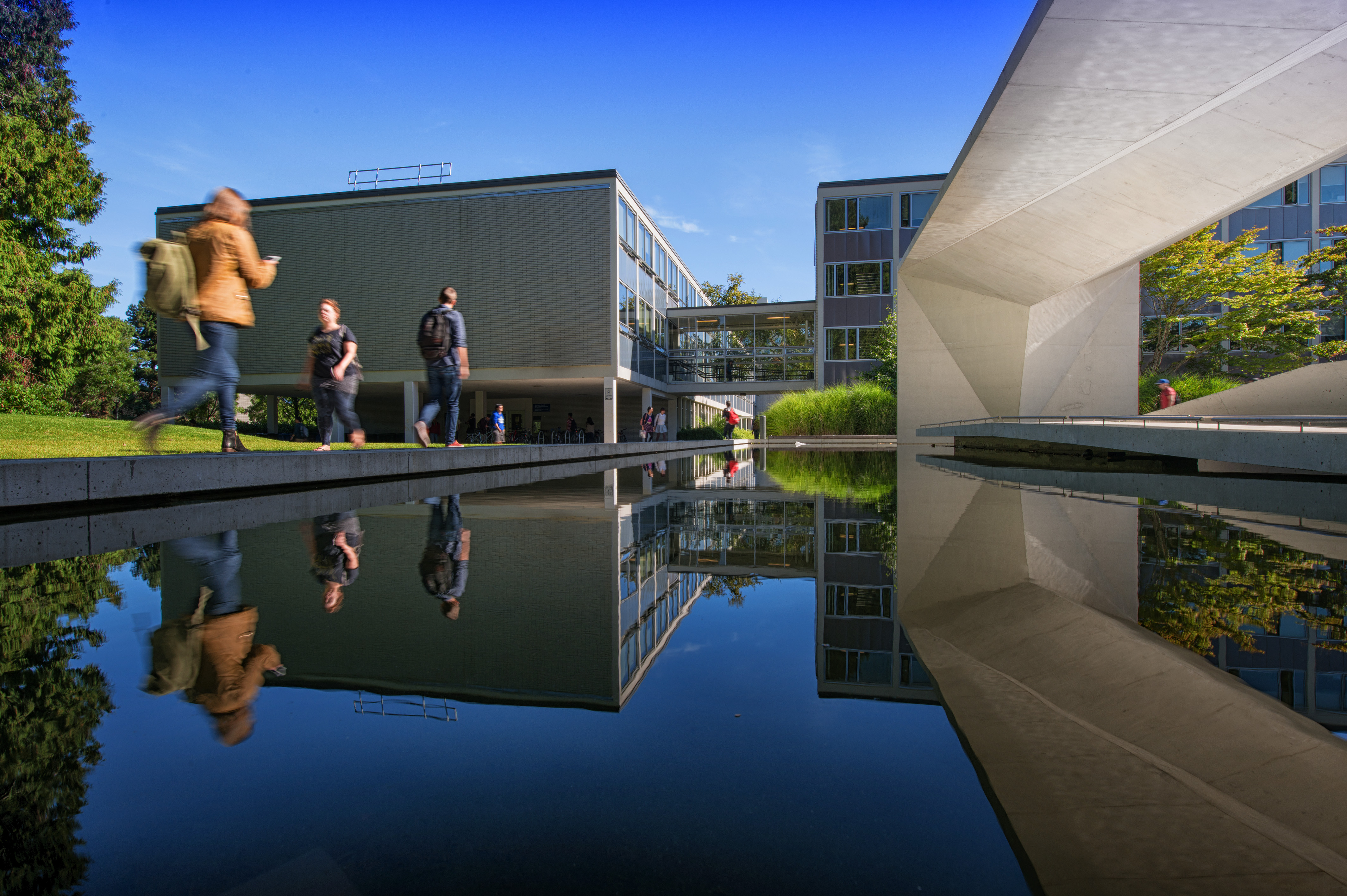
MFA Program
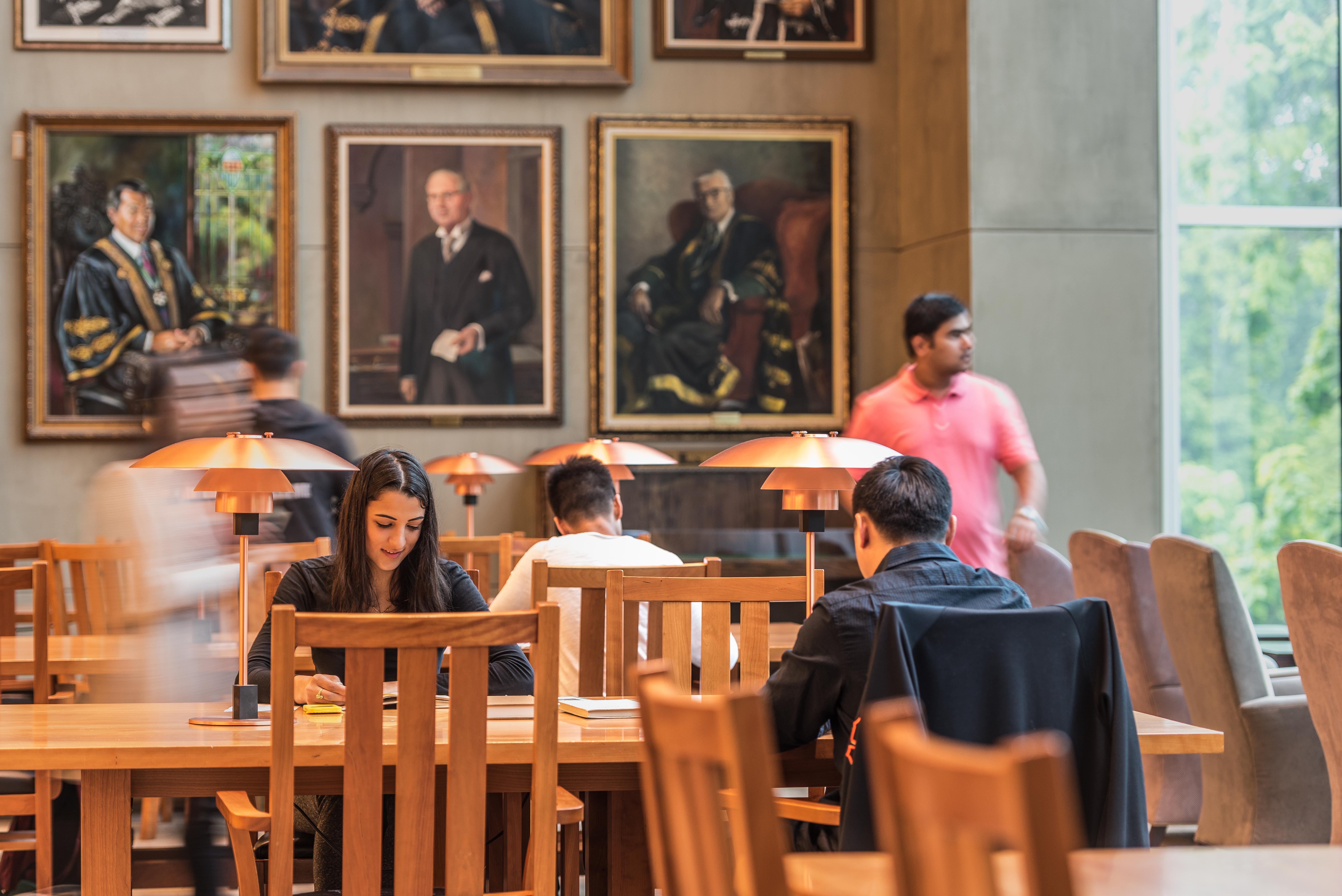
Land Acknowledgement
Featured event, ubc creative writing faculty reading & reception, featured news, read our latest collection of comics from creative writing students, 2024 summer residency film showcase: list of films, ubc professor emeritus george mcwhirter receives largest international award for poetry, faculty highlights, see recent publications and productions from our faculty..
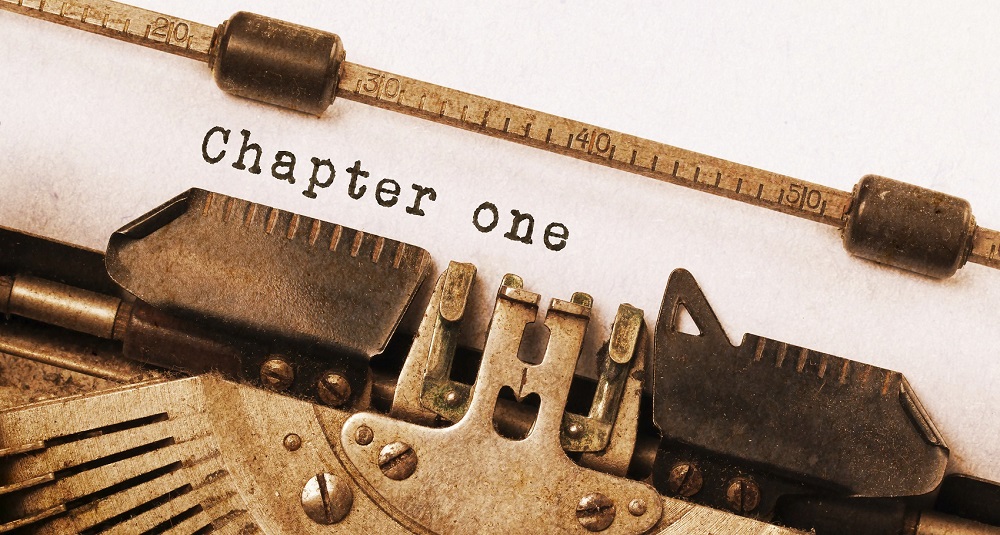
Creative Writing
Stanford’s Creative Writing Program--one of the best-known in the country--cultivates the power of individual expression within a vibrant community of writers. Many of our English majors pursue a concentration in creative writing, and the minor in Creative Writing is among the most popular minors on campus. These majors and minors participate in workshop-based courses or independent tutorials with Stegner Fellows, Stanford’s distinguished writers-in-residence.
English Major with a Creative Writing Emphasis
The English major with a Creative Writing emphasis is a fourteen-course major. These fourteen courses comprise eight English courses and six Creative Writing courses.
English majors with a Creative Writing emphasis should note the following:
All courses must be taken for a letter grade.
Courses taken abroad or at other institutions may not be counted towards the workshop requirements.
Any 190 series course (190F, 190G, etc.), 191 series course (191T, etc.), or 192 series course (192V, etc.) counts toward the 190, 191, or 192 requirement.
PWR 1 is a prerequisite for all creative writing courses.
Minor in Creative Writing
The Minor in Creative Writing offers a structured environment in which students interested in writing fiction or poetry develop their skills while receiving an introduction to literary forms. Students may choose a concentration in fiction, poetry.
In order to graduate with a minor in Creative Writing, students must complete the following three courses plus three courses in either the prose or poetry tracks. Courses counted towards the requirements for the minor may not be applied to student's major requirements. 30 units are required. All courses must be taken for a letter grade.
Prose Track
Suggested order of requirements:
English 90. Fiction Writing or English 91. Creative Nonfiction
English 146S Secret Lives of the Short Story
One 5-unit English literature elective course
English 190. Intermediate Fiction Writing or English 191. Intermediate Creative Nonfiction Writing
English 92. Reading and Writing Poetry
Another English 190, 191, 290. Advanced Fiction, 291. Advanced Nonfiction, or 198L. Levinthal Tutorial
Poetry Track
English 92.Reading and Writing Poetry
English 160. Poetry and Poetics
English 192. Intermediate Poetry Writing
Another English 192, or 292.Advanced Poetry or 198L.Levinthal Tutorial
Creative Writing minors should note the following:
To declare a Creative Writing minor, visit the Student page in Axess. To expedite your declaration, make sure to list all 6 courses you have taken or plan to take for your minor.
Any 190 series course (190F, 190G, etc.), 191series course (191T, etc.), or 192 series course (192V, etc.) counts toward the 190, 191, or 192 requirement.
For more information, visit the Stanford Creative Writing Program.
2024 Best Creative Writing Schools
Choosing a great creative writing school, creative writing rankings by degree level, best schools for creative writing in the united states, 25 top schools in creative writing.
There were about 80 creative writing students who graduated with this degree at Johns Hopkins in the most recent year we have data available.
There were about 119 creative writing students who graduated with this degree at Pitt in the most recent year we have data available.
Embrace your passion for storytelling and learn the professional writing skills you'll need to succeed with our online MFA in Creative Writing. Write your novel or short story collection while earning a certificate in the Online Teaching of Writing or Professional Writing, with no residency requirement.
Related Programs
There were about 12 creative writing students who graduated with this degree at Carnegie Mellon in the most recent data year.
There were about 37 creative writing students who graduated with this degree at UChicago in the most recent year we have data available.
There were approximately 174 creative writing students who graduated with this degree at Columbia in the most recent year we have data available.
There were about 11 creative writing students who graduated with this degree at Northwestern in the most recent year we have data available.
There were about 48 creative writing students who graduated with this degree at Brown in the most recent data year.
There were roughly 37 creative writing students who graduated with this degree at USC in the most recent data year.
There were approximately 53 creative writing students who graduated with this degree at Iowa in the most recent data year.
There were about 10 creative writing students who graduated with this degree at UMN Twin Cities in the most recent year we have data available.
There were roughly 46 creative writing students who graduated with this degree at Miami University - Oxford in the most recent year we have data available.
There were roughly 40 creative writing students who graduated with this degree at Harvard in the most recent year we have data available.
There were roughly 51 creative writing students who graduated with this degree at Emory in the most recent year we have data available.
There were approximately 30 creative writing students who graduated with this degree at Purdue in the most recent data year.
There were about 50 creative writing students who graduated with this degree at UW Seattle in the most recent year we have data available.
There were approximately 28 creative writing students who graduated with this degree at WUSTL in the most recent data year.
There were about 4 creative writing students who graduated with this degree at Notre Dame in the most recent year we have data available.
There were roughly 6 creative writing students who graduated with this degree at Vanderbilt in the most recent data year.
There were about 19 creative writing students who graduated with this degree at Wellesley in the most recent year we have data available.
There were roughly 100 creative writing students who graduated with this degree at UT Austin in the most recent year we have data available.
There were about 8 creative writing students who graduated with this degree at Iowa State in the most recent data year.
There were roughly 17 creative writing students who graduated with this degree at Boston U in the most recent year we have data available.
There were about 53 creative writing students who graduated with this degree at UC in the most recent data year.
There were roughly 73 creative writing students who graduated with this degree at University of Arizona in the most recent data year.
There were roughly 26 creative writing students who graduated with this degree at BGSU in the most recent year we have data available.
Rest of the Top Best Creative Writing Schools
Honorable mentions.
| Rank | College | Location |
|---|---|---|
| 33 | Providence, RI | |
| 34 | Ann Arbor, MI | |
| 35 | Saint Charles, MO | |
| 36 | Washington, DC | |
| 37 | Houston, TX | |
| 38 | Philadelphia, PA | |
| 39 | Tempe, AZ | |
| 40 | Flagstaff, AZ | |
| 41 | Champaign, IL | |
| 42 | San Marcos, TX | |
| 43 | Charlottesville, VA |
Creative Writing by Region
| Region |
|---|
Other Rankings
Associate degrees in creative writing, master's degrees in creative writing, bachelor's degrees in creative writing, doctor's degrees in creative writing, rankings in majors related to creative writing, majors similar to creative writing.
| Related Major | Annual Graduates |
|---|---|
| 3,129 | |
| 1,835 | |
| 853 | |
| 563 |
Notes and References
Popular reports, compare your school options.

- View your wishlist
- Share on Facebook
- Share on LinkedIn
Creative Writing
About this program.
Have you longed to explore your creative potential?
Embrace the unknown and start your journey here. As part of one of the largest Creative Writing programs in Canada, you can learn the essentials of excellent writing and put them into practice. Whether you aspire to write a novel or short story, explore poetry, pen a script or screenplay, or explore other writing styles, we have the courses you need to improve your skills.
Class sizes and writers workshops are kept small to ensure you receive the individual attention you need to help your writing thrive, whether you take your class in-class or online.
Courses in the genres listed below can be applied to the Certificate in Creative Writing
- Creative Non-Fiction
- Escritura Creativa en Español
- Literary Fiction
- Multi-genre
- Poetry and Songwriting
- Popular Fiction
- Stage and Screenwriting
- U of T Summer Writing School
- Writing for Children
Course Spotlight
{{ course.d_course_name }}
Available Certificates ({{ data.certificates.length }})
- {{ certificate.d_certificate_name }}
Course Search
Delivery Method
We currently have {{ courses.length }} Course(s) in {{ data.name }}
Viewing {{ ((pagination.currentPage-1) * pagination.numPerPage) + 1 }} - {{ filteredData.length }} pagination.currentPage*pagination.numPerPage && pagination.numPerPage">{{ pagination.currentPage*pagination.numPerPage }} of {{ filteredData.length }} result(s)
{{ course.d_course_code }} - {{ course.d_course_name }}
{{ course.lowest_fee }}
Sorry, no courses were found that matched your search criteria.
Sign up with us to receive the latest news about our courses and programs, speaker series, course bundles and more.
- U of T Home
- Current Instructors
- Policies and Guidelines
- Help and Information
- Blueprint Career Services
- Organizational and Corporate Training
- PSE Preparedness
- Knowledge Hub
- Financial Aid
- U of T Alumni Benefit
- Biomanufacturing
- Micro Courses and Micro-Credentials
- Professional Edge Program
- SCS XR Courses
- Passing the CFA® Exams
- Passing the Canadian Securities Course®
- SCS Boot Camps
- Skill Builder Courses
- Health, Environment, and Science
- Life and Leisure
- Philosophy and Law
- University Lecture Series
- Visual Art and Architecture
- Business Analysis
- Entrepreneurship
- Human Resources
- Occupational Health and Safety
- Process Improvement
- Project Management
- Test Preparation
- Career Development
- Workplace Communications
- Public Health
- Human Services and Social Work
- Medical Sciences
- Mindfulness
- Continuous Professional Development
- International Pharmacy Graduate Program
- Building Science and Architecture
- Engineering and Applied Science
- Environment and Sustainability
- Information Management
- Information Technology (IT)
- Property & Facilities Management
- Arabic Translation
- Spanish Translation
- Portuguese Translation
- Japanese Translation
- French Translation
- Chinese Translation
- Korean Translation
- Business English for International Professionals
- Learning Design
- Multimedia Journalism
- Communications
- Public Relations
- Partnerships with Associations and Certifying Bodies
- U of T Partnerships
- English Language Program
- Educational Credential Assessment
- Leadership Team
- Academic Leadership
- Teach with us
- Instructor Awards and Recognition
- Instructor Biographies
- Equity, Diversity, and Inclusion Commitments
- Our History
- Media Inquiries
- Curious U Blog
Department of Creative Writing

The Department of Creative Writing at UCR offers the only Bachelor of Arts in Creative Writing in the University of California system and the MFA in Creative Writing and Writing for the Performing Arts . It is a growing and dynamic program made up entirely of established writers and poets. Courses at UCR are designed for all students in the language arts, and they emphasize developing each student's skills and talents. Through writing fiction, poetry, nonfiction, and/or drama, students examine language and meaning both as practitioners and as readers as they develop and hone essential writing techniques.
Every writer needs to develop a critical sense to augment creative ability. For this reason, the Creative Writing Department offers two types of courses. Workshop courses are seminars that focus on writing and on the discussion of student work. Reading courses for writers focus on aspects of literature presented from a writer's point of view. Frequently, they employ writing in imitation as one of several approaches to understanding the craft of writing. Upper-division workshop courses are offered at the beginning, intermediate, and advanced levels in poetry, nonfiction, and fiction. Several reading courses link two genres such as fiction and poetry, and poetry and drama.
Give to Creative Writing Department
Announcements
Katie Ford 's sequence of poems The Anchoress — set as a monodrama by composer David Serkin Ludwig — was performed this summer at Chamber Music Northwest.
Laila Lalami published the New York Times Magazine cover story “A State of Uncertainty” and was named a Radcliffe Fellow at Harvard for 2023-2024.
Charmaine Craig ’s My Nemesis has been published this year by Grove Press.
Thalia Williamson ’s “The Silent Part” was published this summer in Joyland .
Quyen Pham ’s “Such Good Girls” was published this past spring in Room .
Emily Doyle published “Thursdays for Haru” earlier this year in the Sun.
Tom Lutz 's 1925 A Literary Encyclopedia is being published by Rare Bird Lit, and his novel Archipelago is coming out from Red Hen Press. His essay "Gravy Donuts" was published in Iowa Review .
Reza Aslan 's An American Martyr in Persia was longlisted for the PEN/Jacqueline Beograd Weld Award.
Allison Benis White won the 2022 Pushcart Prize and the Lucille Medwick Memorial Award.
Allison Hedge Coke was a 2022 National Book Award finalist for Look at This Blue , a 2023 finalist for CLMP Firecracker Award and ASLE Best Creative Book of the Year . Look at This Blue , was awarded the Emory Elliott Book Award by CHASS Center for Ideas and Society and Hedge Coke was awarded the 2023 Thomas Wolfe Prize & Lecture by the University of North Carolina and the [http://Thomas Wolfe Endowment Fund]Thomas Wolfe Society in fall 2023 .
Susan Straight 's Mecca was a finalist for the Kirkus Prize and named a Top Ten California Book of the Year by the New York Times and one of the best books of 2022 by NPR, the Washington Post and the Los Angeles Times.
Juan Felipe Herrera was a recent recipient of the Poetry Foundation’s Pegasus Award and the LARB/UCR lifetime achievement award. The Fresno Unified School District named its latest school Juan Felipe Herrera Elementary.
Conversations With Steve Erickson has been published by the University Press of Mississippi as part of a series that includes Scott Fitzgerald, Ernest Hemingway, William Faulkner, James Baldwin, William Burroughs and Toni Morrison.
Employment Opportunities
None at this time.
Statement of Solidarity with the Asian American Pacific Islander Community
We are grieved by the recent killings in Atlanta, as well as by all other anti-Asian bigotry and violence, and stand in solidarity with our AAPI colleagues, students, and, more broadly, all AAPI across the nation. We stand against all anti-AAPI hate crimes, discrimination, and dehumanization, knowing that the group Stop AAPI Hate has reported 3,975 hate incidents against Asian Americans between March 19, 2020 and February 28, 2021.
To take action:
- Educational resources and petitions to sign: HERE .
- Report hate incidents HERE and HERE .
- Attend a bystander intervention training to learn ways to stop anti-Asian American and xenophobic harassment. [ March 29 at 3 p.m. ] [ April 20 at 2 p.m. ]
- Send a message to elected officials.
To learn more:
- The New Yorker : Ed Park, "Confronting Anti-Asian Discrimination During the Coronavirus Crisis"
- The House Judiciary Committee held a hearing on Discrimination and Violence Against Asian Americans
Statement of Solidarity with Black Lives Matter
We stand in solidarity with Black Lives Matter. The brutal killings of George Floyd in Minnesota, Breonna Taylor in Kentucky, and Ahmaud Arbery in Georgia are part of a pattern of state violence against Black people, which too often remains invisible and unpunished when it is not blamed on the victims themselves.
America’s institutionalized practice of settler colonialism, genocide, slavery, and segregation continues in the form of continued occupation, discrimination, mass incarceration, and racist policing.
The nationwide protests we are witnessing this week are an expression of anger at police violence, a rejection of white supremacy, and a call to our leaders that they live up to the nation's founding proclamation of equality. We demand accountability from the police, disinvestment from law enforcement in favor of education, housing, and community services, and, above all, justice for the victims.
Recognition of Native Lands Statement
We acknowledge that the land on which we gather is the original and traditional territory of Tongva people [ Tongva and Cahuilla people] and within Tongva, Cahuilla, Luiseño & Serrano original lands and contemporary territories.
In the spirit of Rupert and Jeanette Costo’s founding relationship to our campus, we would like to respectfully acknowledge and recognize our responsibility to the original and current caretakers of this land, water and air: the Cahuilla , Tongva , Luiseño , and Serrano peoples and all of their ancestors and descendants, past, present and future. Today this meeting place is home to many Indigenous peoples from all over the world, including UCR faculty, students, and staff, and we are grateful to have the opportunity to live and work on these homelands. Please also visit our university founder's legacy page, Cahuilla Scholar Rupert Costo , California Indian Studies & Scholars Association , UCR's California Center for Native Nations , Native American Student Programs (NASP), and the page of UCR's Rupert Costo Chair, Dr. Clifford Trafzer .
Download UCR Native American Student Programs Land Statement
Faculty Publications
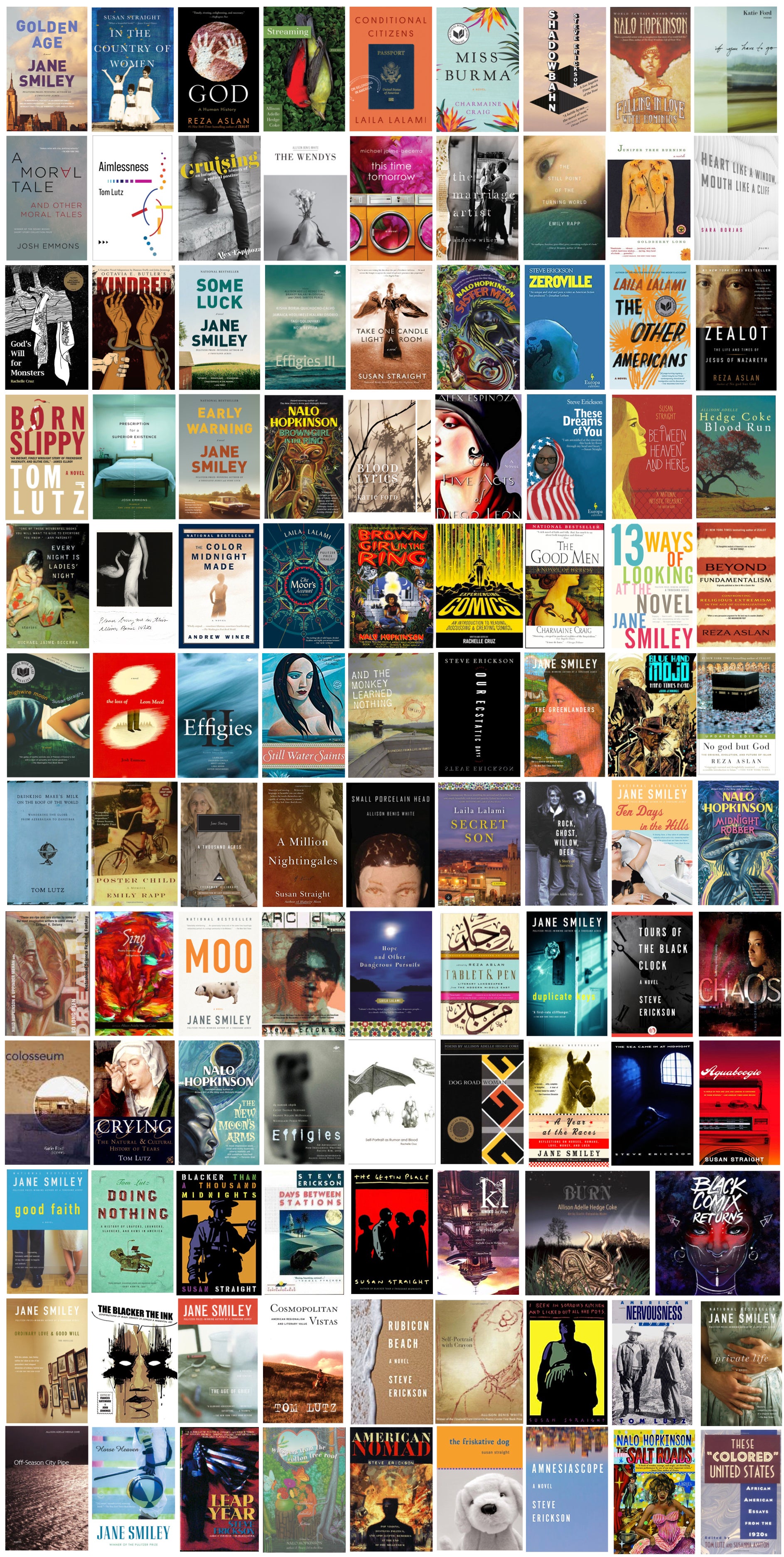
Writers Week
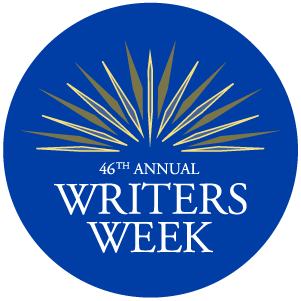
College of Liberal Arts & Sciences
Department of English
- Why English Studies?
- Why Creative Writing?
- Career Success
- BA in English/Creative Writing
- Graduate Admissions
- Undergraduate Studies
- MA/PhD in Literary/Writing Studies
- Undergraduate Course Offerings
- Graduate Course Offerings
- MFA in Creative Writing
- Blogs & Digital Projects
- Conferences & Series
- PhD Dissertations
- Reading, Research, & Discussion Groups
- Undergraduate Resources
- Graduate Resources
- Convocation
- Faculty Resources
- Department Calendar
- Department News
- Administration
- Faculty by Specialty Areas
- Affiliate Faculty
- Emeriti Faculty
- Specialized Faculty
- Graduate Students
- Stay Connected
- Get Involved
- Give to English
- Undergraduate Alumni Spotlight
- Graduate Alumni Spotlight
Creative Writing
Faculty working in creative writing.
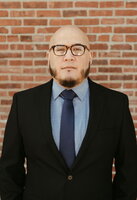

IMAGES
VIDEO
COMMENTS
Our Creative Writing instructors at the University of Calgary aren't just teachers; they are accomplished writers who have left their mark on a diverse range of writing genres, styles, and aesthetics. Our faculty are constantly pushing boundaries, learning from experiences, and exchanging knowledge across disciplines. ...
The program covers many aspects of the creative writer's world from writing development, copy editing, genre writing, time management, publishing, and promotion. The evaluative and interactive format will ensure you receive ample instructor feedback and supportive peer review throughout the program. In the final project course, a portion of ...
You've completed creative writing classes at UCalgary or another university. Even if you're not accepted, we encourage you to continue writing and applying to creative writing graduate courses. Application components 1. Portfolio Submit a substantial portfolio of previous work during your graduate program application ...
The University of Washington English Department's Creative Writing Program offers a BA in English with a concentration in Creative Writing and a two-year Master of Fine Arts degrees in Poetry and Prose.. Founded in 1947 by Theodore Roethke, the Creative Writing Program's tradition of transformative workshops continues with our current faculty: David Bosworth, Nikki David Crouse, Rae Paris ...
Pushcart Prize-nominated, she earned an MFA in Creative Writing from the School of the Art Institute of Chicago. Rosenblum is a creative coach and developmental editor. She also teaches creative writing at Story Studio, where she was voted 2022 Teacher of the Year, and at the University of Chicago Writer's Studio.
This program aims to coordinate the University's various curricular approaches to the creative and critical practice of poetics. The Program supports the History and Forms of Lyric series, an ongoing series of lectures by prominent scholars, and a graduate workshop that focuses on work in progressfrom students, faculty, and visitors.
Per Student & Exchange Visitor Program (SEVP) regulation, international applicants must meet all standards for admission before an I-20 or DS-2019 is issued, [per U.S. Federal Register: 8 CFR § 214.3(k)] or is academically eligible for admission and is admitted [per 22 C.F.R. §62].
Sleeping on the Couch Wasted Pages. The Program in Creative Writing takes a comprehensive approach to the study of contemporary literature, criticism, and theory from a writer's perspective, and provides rigorous training in the fundamental practices of creative writing. In our courses, students work with established poets and prose writers ...
Important: Students are expected to have university-level English writing skills including grammar, vocabulary, and basic writing experience. For those needing these skills, WRI 110 Writing Well can be taken at the beginning of the program. Programs change from time to time, so we recommend that you apply for admission as early as possible.
In these classes, our students can work towards a , engaging in collective and grassroots creative writing and research projects, expanding thought, asking questions, and attending to the voices of others. Research-creation: an approach to research that combines creative and academic research practices, and supports the development of knowledge ...
The Stanford Creative Writing Program, founded in 1946 by Wallace Stegner, has become one of the nation's most distinguished creative writing institutions. After almost 80 years, the program continues to evolve while also respecting its original vision of recruiting and supporting talented writers, offering exceptional creative writing instruction and mentorship, and inspiring undergraduates ...
Writing Support Services offers free individual writing consultations for UCalgary students. We'll support you to develop an individual writing process that'll allow you to become an independent and effective writer. During the consultations, you can: One-on-One Writing Support Appointments are available online and in-person, seven days a week ...
Creative Writing. The English Department is home to a thriving Creative Writing program. Our faculty have collectively published dozens of books of fiction, poetry, literary nonfiction, and criticism. They have won awards from the National Endowment for the Arts, the Ingram Merrill Foundation, and the Fulbright Program, as well as University ...
The Department of English offers creative writing instruction in multiple formats and offers several degrees and qualifications. Undergraduate. At the undergraduate level, students who are enrolled in a B.A. program at UT Austin can pursue the Creative Writing Certificate. Graduate. For graduate students, there are two degree options in ...
U of C Creative Writing Circle, Calgary, Alberta. 138 likes. We are a creative writing club at the University of Calgary that hosts write nights, workshops, open
Creative writing is an art form that transcends traditional literature boundaries. It includes professional, journalistic, academic, and technical writing. This type of writing emphasizes narrative craft, character development, and literary tropes. It also explores poetry and poetics traditions.
Year2: Take core modules in creative short fiction and screenplay writing. Deepen your understanding of writing in English by choosing from a range of modules focusing on global and English literature, publishing, writing for media and communications, and advertising. Year 3: Take core modules in writing for gaming and long-form journalism.
Expand your knowledge and hone your craft with our fully funded, three-year master's degree in creative writing, which combines the intimacy of a small program with visits by renowned authors from around the world. Our dynamic MFA program provides a rigorous yet nurturing community where aspiring writers can compose, experiment, learn and evolve.
UBC Creative Writing Faculty Reading & Reception. September 16, 2024. 2:00 pm - 3:30 pm. RSVP.
The Minor in Creative Writing offers a structured environment in which students interested in writing fiction or poetry develop their skills while receiving an introduction to literary forms. Students may choose a concentration in fiction, poetry. In order to graduate with a minor in Creative Writing, students must complete the following three ...
A Best Colleges rank of #9 out of 2,217 schools nationwide means Carnegie Mellon is a great university overall. There were about 12 creative writing students who graduated with this degree at Carnegie Mellon in the most recent data year. More information about a degree in creative writing from Carnegie Mellon University.
Embrace the unknown and start your journey here. As part of one of the largest Creative Writing programs in Canada, you can learn the essentials of excellent writing and put them into practice. Whether you aspire to write a novel or short story, explore poetry, pen a script or screenplay, or explore other writing styles, we have the courses you ...
The Department of Creative Writing at UCR offers the only Bachelor of Arts in Creative Writing in the University of California system and the MFA in Creative Writing and Writing for the Performing Arts.It is a growing and dynamic program made up entirely of established writers and poets. Courses at UCR are designed for all students in the language arts, and they emphasize developing each ...
Associate Professor, Director of Creative Writing. [email protected]. David Wright. Professor. [email protected]. Department of English. 608 South Wright Street MC-718. Urbana, IL 61801 (217) 333-2391. Email: [email protected]. Instagram; Facebook; College of Liberal Arts & Sciences ...
The Creative Writing model, when sufficiently diverse, is adequate preparation for admission to graduate writing programs. Category I: At least two, but not more than six, upper-division creative writing workshops. Students are encouraged to take one workshop in an alternate genre: CRW 3310 Adv. Sem: Poetry.
Social & Behavioral Sciences. Develop your writing craft and from fiction and nonfiction to poetry and technical writing and under the guidance of award-winning, published authors in small workshop settings. The Creative Writing program offers students the opportunity to develop their skills for creative written expression.